

STUDENT LIFE
choose the future.
choos e B a d e n -
Wü
r t t e m b e r g .

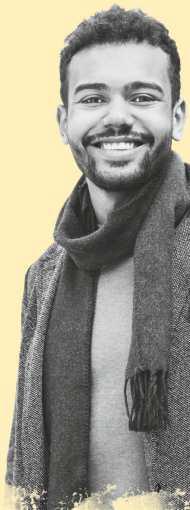
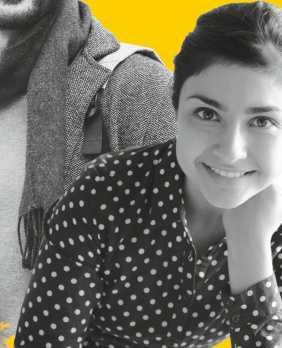
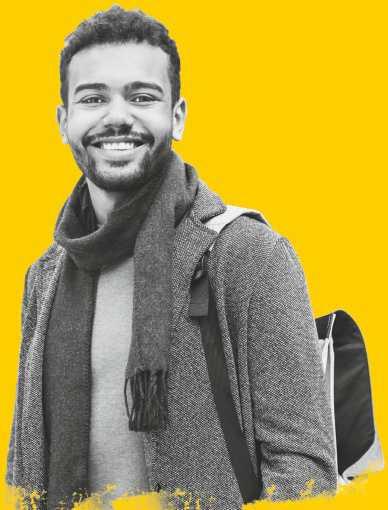





Areyou looking forexcellent research and studyopportunities thatwill prepareyou forthe future?
Then,choose Baden-Württemberg. Here,you find Germany’slargest number of renowned universities withaclear future-oriented focus. Experience whythe stateisatthe forefront of academicexcellenceand instruction, and decide between morethan 3,500 academic degree programsoffered by the institutes of highereducation.
FROM US TO YOU
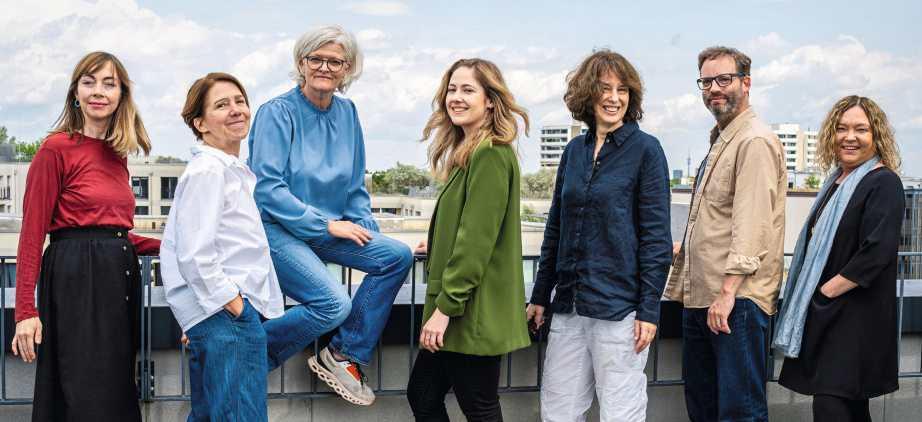
If you are reading this, you are almost certainly interested in coming to Germany to study or do research. We were in your position once! Most of us came here as international students and liked it so much that we made Germany our home. Why?
The country is like a sparkling diamond, with many facets. There is art and culture, history and modern, forward-thinking innovation. There is diversity and color, and it’s a safe place to live. For students, there is academic excellence — in STEM programs, but also in the humanities — as well as academic freedom and independent thinking. There are job opportunities during your studies and after you graduate. And, for many, higher education in Germany is a financial bargain compared to the cost of getting a degree at home. Discover what Germany can offer you!
The ZEIT Germany Team
ZEIT, a German weekly newspaper, covers politics, education, business and more.
ZEIT Germany’s print edition is available via the network of the German Academic Exchange Service (DAAD), Goethe-Institut, and the Federal Foreign Office, among others. The entire issue is available digitally at www.zeit.de/germany
Rachel Preece, Sarah Gough, Elke Latinovic, Stephanie Noll, Judith Gilbert, Richard Mote, Christiane Schäffner


With its academic excellence and world-class institutions, Germany is an attractive destination for international students and researchers
German universities offer a wide range of sports. Here are a few of the more unusual ones
International and German students explain why they chose to study here, how they spend their free time and what they love about living in the heart of Europe
Three international researchers in Berlin share their experiences and their reasons for choosing Germany’s capital city
and more: We have tips
prepare
for daily life in Germany
Photos: Alamy Stock Photo; picture alliance / REUTERS (M), Jamal Cazaré
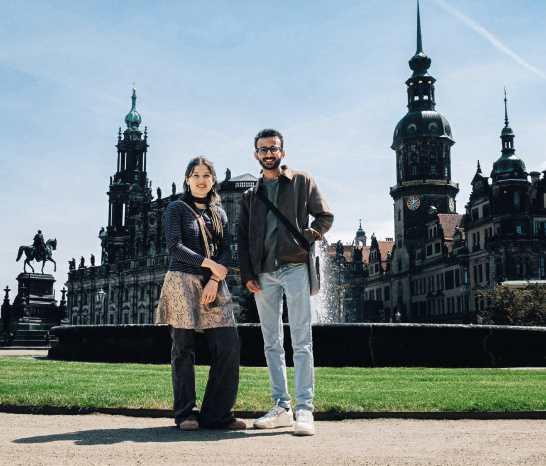
44 WORK IT
International students explain how they found jobs in Germany during and after their studies here
48 A–Z ESSENTIALS
A reference guide of German university-related vocabulary
52 DO I QUALIFY?
If your certificates aren’t recognized, preparatory courses help you qualify for admission to German universities
54 FINDING THE PERFECT FIT
Discover a great platform with tools to help you find the right degree program for you
The key cost factors you’ll need to consider
58 SURVIVING BUREAUCRACY
These tips will help you navigate the admin and paperwork you’ll need to do
60 CHECKLIST
Going abroad is exciting, but it also requires planning. Here’s a list to help you get everything done on time
63 ZEIT GERMANY
Here’s the fine print (who we are and how to contact us)
64 FACTS & STATS
A fun quiz full of surprising facts and trivia about Germany’s students and universities
66 USEFUL SITES
Do our QR-coded crossword to help you prepare for your great German adventure













WELCOME
From sandy beaches to snow-capped mountains, with historic towns and vibrant cities, history and innovation: Germany is a diverse and dynamic country that’s well worth exploring.
BY ANA MARIA MÄRZ

TO GERMANY
A view of Heidelberg, across the Neckar River — home to Germany’s oldest university

Berlin, with its iconic TV tower, is a city rich in history, art and culture — known for its diversity and electrifying, international flair
Home to more than 83 million people, Germany is a country full of variety, culture and history; a place with hundreds of universities, academies and research institutes, where science and economics are highly valued. The country has produced many groundbreaking inventions and continues to invest heavily in research and development today, promoting innovation in industry and areas such as digitalization, medicine and renewable energy. All this makes Germany an attractive destination for young people from around the world, who come to study, work on innovative projects, develop new technologies and help shape the world of tomorrow.
THE CAPITAL
Internationality is a feature of Germany’s largest city and capital, Berlin. With just under four million people, the city is home to the federal government and the parliament, the Bundestag. This building, with its iconic glass dome, is one of the city’s most important landmarks, along with the Brandenburg Gate, the Berlin Cathedral and Alexanderplatz, with its 368-meter-high TV tower.
There’s a lot of culture to be enjoyed in the city’s museums, galleries, theaters, opera houses, cinemas and concert halls. Berlin is a dynamic city — colorful and cosmopolitan. These are qualities that are also found in its four big universities, which greatly value international cooperation. A wide variety of languages can be heard around the city, and in the trendy cafes of Kreuzberg or Friedrichshain, it’s not unusual to find most people speaking English. The names of those two neighborhoods form the name of what’s probably Berlin’s most famous club: Berghain. Renowned DJs come here to play techno and house — but before you can get on the dance floor, you have to wait in line and get past the famously tough bouncers. Luckily, there are plenty of alternatives.
A sign of the city’s vibrant club culture is that Berlin’s techno scene has become part of Germany’s intangible cultural heritage. The UNESCO committee described the music as the “soundtrack of liberation” after the country’s reunification.
Berlin is also a city with a rich history. From 1961 to 1989, the Berlin Wall formed part of the border that separated Germany into East and West. Today, at the East Side Gallery, artists have converted a 1.3-kilometer-long section of the original wall into the world’s longest open-air art gallery. That’s just one of many opportunities to learn about Germany’s tumultuous past. The Holocaust Memorial, with more than 2,700 upright concrete stones, is a stark reminder of the victims of the darkest chapter of German history.

Berlin’s techno scene has become part of Germany’s intangible cultural heritage.
UNESCO described the music as the “soundtrack of liberation” after the country’s reunification
CITY SCENES
About 70 percent of the people live in or around big cities, urban areas of more than 100,000 residents, according to Germany’s Federal Statistical Office. Hamburg, the second-largest city in Germany, is famous for the Elbphilharmonie concert hall. Striking features of the building’s architecture, including a wave-shaped glass construction and excellent acoustics, made it an instant landmark of the city after it opened, in 2017. The observation deck of the concert hall provides stunning views across Hamburg’s harbor — the biggest in Germany and a hub of the country’s export industry.
The harbor is also the location of the Stage Theater, known for performances of world-famous musicals. The local specialties on offer at the fish market attract up to 50,000 people every Sunday — but visitors must be early risers, as the market is open from 5 a.m. to 9:30 a.m. in the summer months.
Hamburg’s world-class concert hall, the Elbphilharmonie, is designed in maritime tradition to resemble a ship and is located at the city’s harbor
COASTS, CARNIVAL AND CONCERTS
In Hamburg, you’re not quite close enough to smell the sea air, but it’s not far to the coast. The Elbe River links the city with the North Sea, where you can stroll along the 12-kilometer-long St. Peter Ording Beach and visit the scenic North Frisian Islands. Alternatively, you can visit the Baltic Sea, with a stop in Lübeck, the birthplace of author Thomas Mann and a city famous for its marzipan. The Baltic coast offers highlights such as the Timmendorfer Beach or the chalk cliffs on the island of Rügen. On either coastline, you can shelter from the wind by renting a hooded wicker beach chair (Strandkorb), which are distinctive to this region. Or try a sport that embraces the wind — along with swimming and hiking, sailing and windsurfing are popular.
In the west, Cologne is a 2,000-year-old city on the Rhine River. Here, you’ll discover signs of its Roman and medieval history, including the
Munich offers a high quality of life and has attracted global tech players — including Apple, Google and, most recently, OpenAI

777-year-old Cologne Cathedral. This stunning Gothic building is the largest church in Germany and, with six million visitors a year, one of the most popular tourist attractions. A particular highlight is the modern stained-glass window designed by contemporary visual artist Gerhard Richter.
Cologne is also a famous carnival city, which attracts thousands who come annually to celebrate a huge costume party. Carnival begins officially at 11:11 a.m. on November 11 and reaches its climax on Shrove Monday — exactly 48 days before Easter.
The nearby Eifel region hosts the music festival Rock am Ring, which along with Rock im Park, in Nuremberg, is among the highlights of Europe’s busy summer festival calendar.
BIG IDEAS AND INNOVATIONS
Meanwhile, autumn is when Munich celebrates the Oktoberfest, the world’s biggest folk festival. Many come wearing traditional Bavarian costume (Tracht) — some more traditional than others. The city is also home to Germany’s best-known and most successful soccer club: FC Bayern München. However, if neither beer nor soccer are for you, Munich has plenty more to offer — including the Deutsches Museum, the largest museum of science and technology in the world. Among the exhibits, you’ll find famous German inventions, such as a model of the first automobile, patented by Carl Benz in 1886.
Germany’s car industry, with world-renowned manufacturers such as Mercedes-Benz and Porsche, both based in Stuttgart, or Volkswagen, in Wolfsburg, is one of the most significant sectors of the economy. Car fans can see the transformation that the industry is going through at BMW Welt. This is where the Munich-based company presents its latest models and technologies. However, it’s not just big, traditional companies that are important. Munich showcases the power of world-class research and educational institutions, and of its start-up scene, with which the city has attracted global tech players, including Apple, Google and, most recently, OpenAI. Munich, in the south of Germany, offers a high quality of life and lots of green space — at 375 hectares, the English Garden is one of the largest urban parks in the world. On hot days, you’ll see people
Maypoles (Maibäume) are a southern German tradition, put up on village squares on May 1 — but you might also see one while hiking in the Alps! The poles are decorated with the crests of professional guilds

cooling off in the “ice-cold” Eisbach Creek, enjoying a picnic on the grass or a drink in one of the many beer gardens, sometimes to the sounds of a traditional brass band. What’s special about Bavarian beer gardens: Although you can buy food there, guests are also allowed to bring their own food — only the drinks must be purchased. Of course, the parks also attract sports fans who play soccer, volleyball or perhaps the latest trend sport, spikeball.
Cologne is a 2,000-year-old city on the Rhine River
Wicker beach chairs (Strandkörbe) are a common sight on the German coast, great for chilling with a friend. Read what students Antonia and Nourhan have to say about life at the seaside, on page 29

Self-made. Made by EBS.
Astrong personality helps otherstoreach their full potential Gülsah Wilkeembraces this mission.Sincegraduating from EBS Universität, shehas heldvarious positionsatleading companiesand is nowaninvestorat DN Capital.
At 2hearts, she also helpspeoplewithamigrantbackground to take advantage of their opportunities in Germany and exploit their full potential
Learn moreabout hersuccess story andthe EBS Universität study programmes



The Baltic island of Rügen is great for a break at the seaside and was a favorite motif for the German Romantic landscape painter Caspar David Friedrich
A short way outside the city, you’ll be surrounded by nature. Large lakes, such as Tegernsee and Chiemsee, are easy to reach and a paradise for sailing or stand-up paddleboarding. And a little farther south are the Alps. Along with the Zugspitze, Germany’s highest peak, there are many smaller mountains and Alpine farms, where weekend hikers can stop for a bite to eat and enjoy the view.
GREAT CASTLES AND SMALL WONDERS
In the foothills of the Alps, you may feel like you’ve stepped into a fairy tale, especially standing in front of Neuschwanstein Castle. Bavarian King Ludwig II had this castle built in a medieval style from 1869. Today, about 1.4 million people visit Neuschwanstein every year.
Historic castles are dotted throughout Germany. Some of the best include Hohenzollern Castle, in


Yes, it’s real!
Burg Eltz is one of Germany’s amazing fairy-tale castles
Baden-Württemberg, which is the ancestral seat of the Prussian aristocratic family. Burg Eltz, in Rhineland-Palatinate, is a fairy-tale castle that used to be featured on German banknotes. Heidelberg Castle is another highly impressive building, the ruins of which still hold a commanding position above the city of Heidelberg and the Neckar River.
Heidelberg is one of numerous small cities that are extremely popular with students and researchers. A picturesque old town with historic houses and narrow medieval streets can also be found in cities such as Freiburg, Göttingen or Regensburg.
One of the most significant German inventions came from Mainz, where Johannes Gutenberg invented the movable-type printing press around 1450. And Mainz has made history more recently: The world’s first approved Covid-19 vaccine was developed here by the pharmaceutical company Biontech.
MODERN AND TRADITIONAL
There’s a reason why Germany is known as the Land of Poets and Thinkers, having produced philosophers such as Immanuel Kant. Johann Wolfgang von Goethe, who wrote classics such as The Sorrows of Young Werther and Faust, is considered the benchmark of high German literature. Goethe was born in 1749 in Frankfurt am Main, a city that symbolizes the contrast of traditional and modern Germany, with its old town center and the skyscrapers of the country’s financial center.
Photos: picture alliance / imageBROKER; Dominik Asbach
The historic city of Aachen is known for its gingerbread (Printen). Read what students Pandya and Andrew have to say about life in Aachen, on page 32
Moving farther east, Leipzig is where composer Johann Sebastian Bach was the choirmaster of St. Thomas Church in the 1700s. Still a hub of creativity, Leipzig has a diverse cultural scene and, perhaps surprisingly, wonderful waterways — all of which makes it a fascinating city for young people.
Dresden offers the baroque splendor of the Semper Opera House, one of the world’s most spectacular theaters. However, the city is not just a place of high art and culture. In the colorful courtyards of Neustadt, you can find galleries, antiquarian bookstores and cafes. In the Animal Courtyard (Hof der Tiere), giraffes and birds adorn the facades, while the blue walls of the Elements Courtyard (Hof der Elemente) feature drainpipes that become musical instruments when it rains.
THE WORLD ON YOUR PLATE
Germany has a rich variety of regional cultures, dialects and food — from fish by the sea to currywurst in Berlin, or from Aachen’s gingerbread to Bavarian
Frankfurt am Main symbolizes traditional and modern Germany, with its old town center and the skyscrapers of the country’s financial center
roast pork. Beyond the traditional specialties, modern German cuisine not only offers vegetarian and vegan options, but thrives on numerous international influences, too. The Döner kebab, for example, a snack made of flatbread filled with meat (or an alternative), salad and sauce, is popular throughout Germany. And while the dish originated in Turkey, this particular style of kebap was invented in Berlin in the 1970s.
Even the seasonal variation in the weather contributes to the country’s diversity. In the summer, people like to be outdoors doing sports, hunting for bargains at flea markets or meeting their friends at the many outdoor cafes. The winter snow is not just for skiers in the mountains, but also delights city children who find a hill to sled down. And snow in December helps to create the postcard-worthy scenes at the Christmas markets that are found all over the country. There really is a great deal to discover in Germany. Come and see for yourself!














ALL OVER THE MAP
Although it lies in the heart of Europe, Germany is a surprisingly young country, having not become a unified nation until 1871. This is one reason why no one place, not even the capital, dominates the country. This map provides a geographical overview to help you get to know Germany and its major cities better.
BY RACHEL PREECE ILLUSTRATION JÖRN KASPUHL
BERLIN
Germany’s capital was once described, by its own mayor, as “poor but sexy.” That was over 20 years ago, however. Today, the city is no longer as poor and, some might say, not quite as sexy, as it was, but it is certainly an exciting European capital that always offers something new and interesting.
Fun fact: Berlin hosts more than 50 film festivals each year, which is almost one per week, and is said to have more museums than rainy days.
BONN
An international city with a sleepy-village vibe and lots of fun-loving Rhinelanders. The provisional capital of West Germany from 1949 to 1990, Bonn still hosts 27 United Nations institutions. It’s also the birthplace of composer Ludwig van Beethoven and an excellent spot from which to take a boat trip along the Rhine.
Fun fact: Both Karl Marx and Friedrich Nietzsche studied in Bonn.
FRANKFURT
Fly to or from Germany and there’s a good chance you’ll find yourself in Frankfurt, at one of Europe’s largest airports. With 14 of the 15 tallest buildings in Germany, Frankfurt doesn’t look like a typical European city. It’s home to hundreds of banks and the Frankfurt Stock Exchange.
Fun fact: The European Space Operations Centre, mission control headquarters of the European Space Agency, is located close by, in Darmstadt.
HAMBURG
Germany’s second-largest city has an undeserved reputation for being a very rainy place. Nevertheless, water plays a big role in Hamburg, with its rich maritime tradition — about eight percent
of the city’s total area is made up of water. As a result, Hamburg has more bridges than either Venice or Amsterdam.
Fun fact: Hamburg is home to the world’s largest collection of earthworms.
LEIPZIG
Located in the eastern state of Saxony, this was the starting point of the Peaceful Revolution of 1989, when the city’s inhabitants risked their lives to take part in public demonstrations against the communist regime in East Germany. Previously home to famous composers such as Bach and Mendelssohn, Leipzig is still a vibrant cultural city. A highlight is the central train station, one of the largest and prettiest in Europe.
Fun fact: The world’s first daily newspaper was published here, in 1650.
MUNICH
After visiting the cities of northern Germany, Munich feels much more Mediterranean and is often described as a large village. The most southerly of Germany’s major cities is instantly recognizable from afar by the “onion-topped” twin towers of the Church of Our Lady (Frauenkirche), which stand around 100 meters high.
Fun fact: The Frauenkirche towers aren’t the same height — the north tower is 12 centimeters taller.
STUTTGART
For an industrial center, Stuttgart has lots of nature, with over 400 hectares of parks and green spaces. It’s also the capital of Baden-Württemberg, one of Germany’s main wine-growing areas.
Fun fact: The city has more than 400 outdoor steps, called Stäffele, that help keep the locals fit.
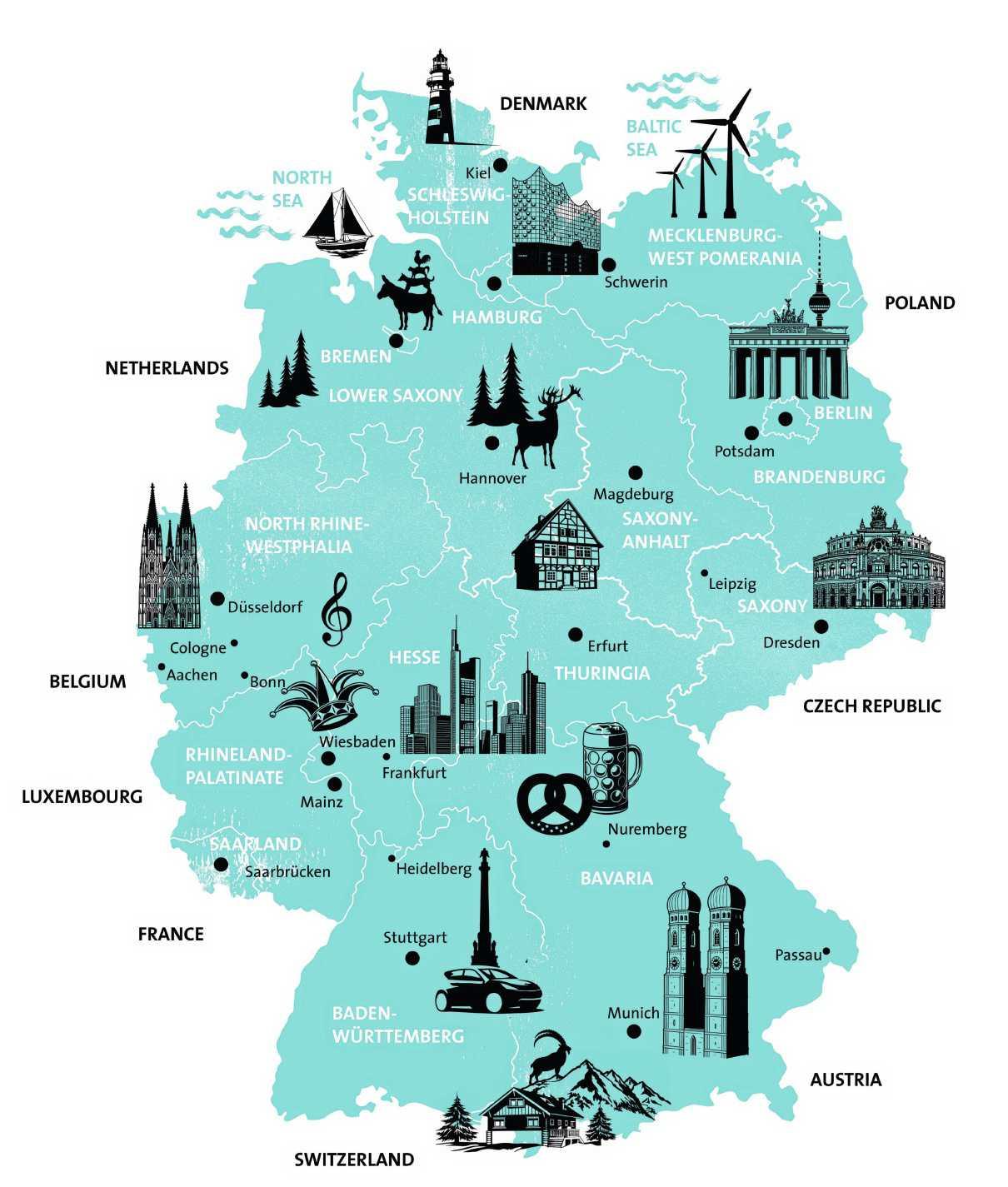
FIVE BOOKS TO READ
Want to understand Germany’s past and present a bit better? Here are five books to help you do so.
BY RACHEL PREECE

GERMANY: MEMORIES OF A NATION
Neil MacGregor
A comprehensive account of 600 years of German history by British historian Neil MacGregor, this book looks at the moments that defined Germany. The book is broken down into 30 bite-sized chapters and takes a thematic approach, from the significance of forests to national landmarks like the Brandenburg Gate, and internationally important movements such as Bauhaus. MacGregor covers big moments in history but also goes beyond them, looking at the impact of German culture on the world. For those who want to dive deeper, a BBC Radio 4 series goes with it.

VISITATION
Jenny Erpenbeck
Jenny Erpenbeck is one of Germany’s leading contemporary novelists. Her debut novella, The Old Child, about a woman who refuses to grow up, is based on Erpenbeck’s real-life experiment of returning to school when she was 27, pretending to be 17. Her award-winning work largely focuses on Germany’s fractured past. In Visitation, this spans 100 years, from the early 20th to the early 21st century, in one grand villa overlooking a lake in Brandenburg. Erpenbeck writes about the characters that lived there, from the Jewish family forced to sell to an architect under the Third Reich, to the woman who has to leave when the house is reclaimed after reunification. There’s no permanence here: All of the characters are visitors — hence the title. For one reason or another, everyone must leave eventually.

WHY WE TOOK THE CAR
Wolfgang Herrndorf
A hilarious, irreverent coming-of-age story by German author Wolfgang Herrndorf, Why We Took the Car focuses on two teenagers: Mike and Andrej. Both school loners, their friendship develops when they steal an old car and head out on a road trip across the country, meeting odd, interesting and delightful characters along the way. Buckle up for a fast-paced summer adventure.

THE COMPLETE MAUS
Art Spiegelman
The New Yorker called Maus “the first masterpiece in comic-book history,” and it was the first graphic novel to win a Pulitzer Prize. Written by American cartoonist Art Spiegelman, Maus tells the story of the author’s Jewish-Polish parents, who were imprisoned in Auschwitz in the 1940s. Not only does the graphic novel cover the Holocaust, it also documents the author’s struggles to get his father to talk about what he went through. It’s a heartbreaking story told in a unique, accessible way.

STASILAND
Anna Funder
Australian author Anna Funder moved to Berlin six years after German reunification. She developed a fascination with Germany and its people, and her book about the secret police in East Germany is incredibly well researched. It contains interviews with former Stasi employees and informants, as well as everyday Germans who lived under the oppressive Stasi rule until the fall of the Berlin Wall, in 1989. This book won the UK’s most prestigious award for nonfiction published in English, the Baillie Gifford Prize. It’s been published in 28 countries in many different languages.

Becoming aLeader of Tomorrow
Do yo uwanttob ea bu si ne ss le ad er of to mo rrow?Con si derin gB us in es sAdm in is tratio n or Inte rn atio na lM an ag em ent as ad eg re e? Kü hn eLog is tics Un iver sity (K LU )atthe he ar t of Ha mb ur g'sH afen City o ff er s in novative ,i nternation al study prog ra mm es .
KLUr ates am on gt he to p5 % of Bu si ne ss Sc ho ol swor ld wi de It o ff er sh ig h- qu al it yt ra in in g in bu si ne ss ,m an ag emen ta nd lo gistic s. Wi de rrea ch in gtha na tr ad itio nal bu si ne ss sc ho ol ,t he Un iver sity ha sits ro ot si nl og isti cs –t he ner ve ce nter of th e gl ob al econ omy. It prep ares it s st ud ents to le ad wh ereitcou nt s –a tt he he ar tofb us in es sa nd so ci et y.
AllK LU students benefit from this solidfoundationinlogis tics
Create dbyK laus-Michael Kühne, oneofG ermany ’s most influential
Co nt ac t
Kühn eLogis tics Univer sity
Große rG ra sb ro ok 17
20 457H amb urg|G erma ny
Tel. +494 0328707- 0
study@ klu .o rg |w ww.klu .o rg
entrep re ne ur s, th ef ac ulty co ntinu es to be ar »Log is ti c« in it s na me .H en ce ,ithas highlighte d an dapplied theb es toflogis tics to it smanag em entd egre ep rogramme s. It stitle stands fors trate gicthinking, ra pida ction, an d efficientimplementation
Whether global supply chains , data-drivenmanagement, or sustainable busine ss —atK LU stude nt sl ea rn to vi ew prob le ms ho li st ic al ly.T heyg ai nas wi ft over view,d evelop e ffi cienta nd pragmaticsolutions andassume re sp on si bi li ty .C on se qu en tly,theywillb ep re pa re dfor any challenge. This KLU» Operations Mind set« re pres ents an ew unders tandingofleadershipand is aime datthe busine ss leaders of tomorrow:Wedes till thebes tof logistic sintoanew kind of busine ss educ ation–one that is analytic al ,g lo ba l, an da ctio n- or iente d.
Over 60 nation alitie sc an be foundonthe KLUc ampus. Small clas ssizes an dindivid ualattention areanother plus .You will not be overlo oked .H ere, ever ything is prac tice -oriente dand internati on ally fo cu se d. Ex pe rt sf ro m thefieldvisit thec ampusregularly,givinginsight sintothe industr y. Allclasses aretaughtinEnglish ,a nd with mo re than half of staff an ds tu de nt scomingf ro m ab ro ad ,you will have atrulyinte rn atio nal expe rien ce allwhile studying in Germany.
KLUo ff er sinteg rate dc aree r se rv ices from day1 ,i nc lu di ng 1:1c areercoachings ,recruitment even ts ,a nd su pp or ti nf in din gi nter ns hi ps an dj ob s. 90 % of st ud en ts fin daj ob with in 3monthsafter graduation
To finance your studies, KLUoffers abroad varietyofscholarships andfinancingoptions,coveringup to 10 0% of your tuitionfees.
Fi nd yo ur pe rfec tK LU prog ra mme –t akethe 4- mi nu te qu iz now:
AT AGLANCE
Course of study/degree(e.g.)
BSc Business Administration
MSc Global Logistics & Supply Chain Management
MSc International Management
MSc BusinessAnalytics and Data Science
Lengthofstudy:
BSc:3 years(6semesters)
MSc: 2years(4semesters)
Tuitionfees:
BSc:6.800 €/semester
Master: 7.800€/semester
Admission requirements
Universityentrancequalification and evidenceofthe required English languageskills

WHY STUDY

With a reputation for academic excellence and institutions that consistently appear in top global rankings, Germany is an attractive destination for international students.
BY VINCENT SUPPÉ
Photo:
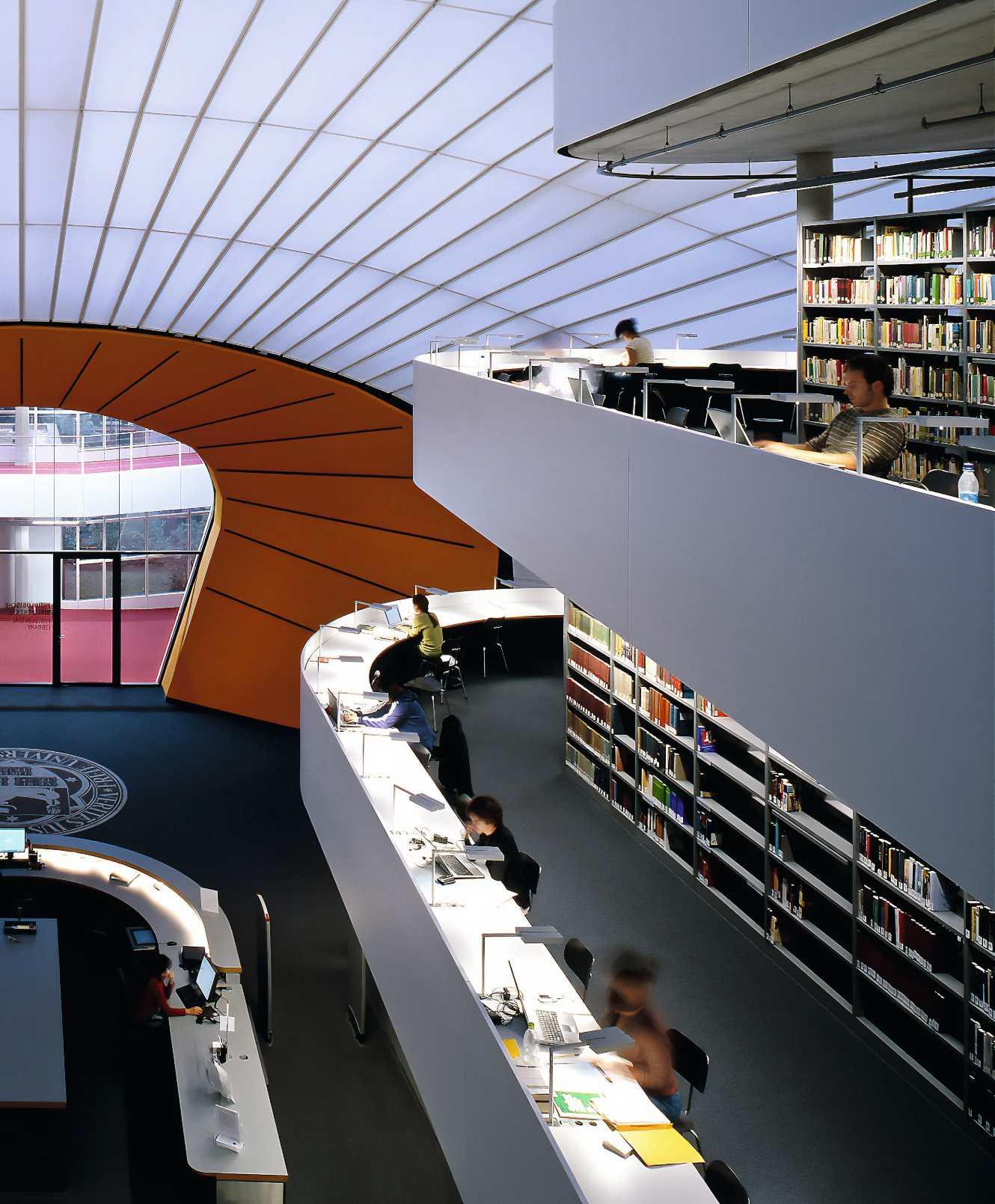
IN GERMANY?
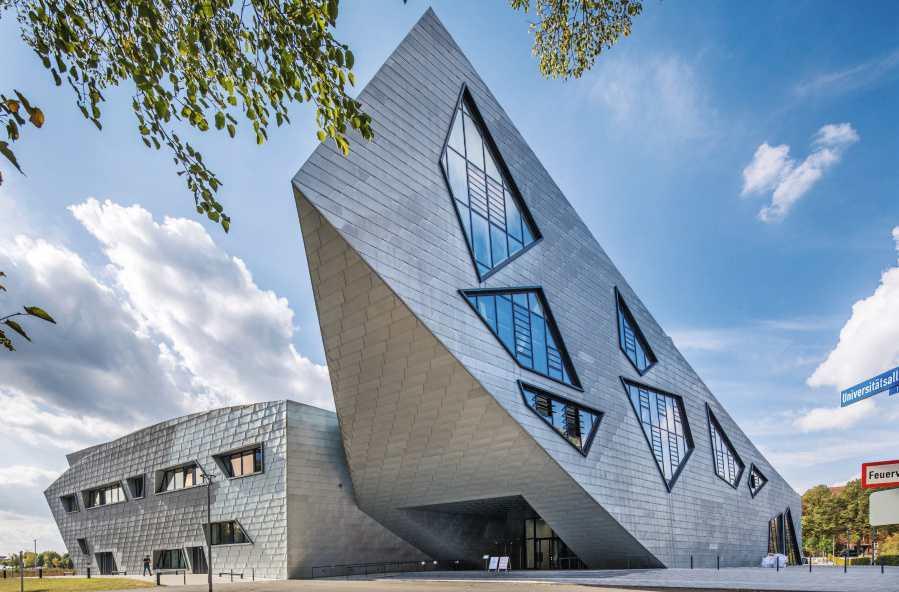
Beatriz Vidovichi knows exactly why you should study in Germany. After all, she has studied here twice! Vidovichi comes from Rio de Janeiro, in Brazil. In 2016, she moved to Germany’s capital city, Berlin, to do a bachelor’s degree in economics. Later, after completing two semesters in France, Vidovichi initially considered staying in Paris, but then, changed her mind, returning to Germany to do a master’s degree in industrial economics. She’s now working for the consulting firm PwC.
Hania Hribal-Kornilowicz, from Milwaukee, Wisconsin, in the United States, also lives in Germany now. After finishing a bachelor’s degree in New York, Hribal-Kornilowicz got a job in Spain in 2017, but has since relocated to do a master’s in environmental planning at the Technical University (TU) Berlin.
Beatriz Vidovichi and Hania Hribal-Kornilowicz were born in different countries on separate continents. They have followed different paths in life, but both chose Germany as the place to do their studies, and they are far from alone.
INTERNATIONAL APPEAL
According to a survey conducted by the German Academic Exchange Service (DAAD), there are currently more than 400,000 international students enrolled at German universities. The president of the DAAD, Dr. Joybrato Mukherjee, says: “German
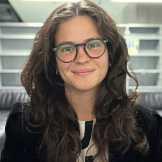
“I hope my degree from Germany will give me a career advantage”
Beatriz Vidovichi
Germany, land of cutting-edge technology and innovation. The Forum (2017) at Leuphana University in Lüneburg was designed by Daniel Libeskind
universities are proven to be very attractive for international students.” The majority of those who come to Germany to study are from India and China, but there are also many from Turkey, Austria and Iran. Vidovichi and Hribal-Kornilowicz explain why so many young people choose to study in Germany.
“I went abroad to study to gain experience and discover something new,” says Vidovichi. She finds Europe, and especially Germany, ideal. The country has a lot to offer: It has mountains and the coastline; interesting cities, including Hamburg, Berlin, Cologne and Munich, and even the countryside is full of sights and cultural highlights, thanks to the long and rich history of this region.
In addition, Germany’s central location in the heart of Europe means that countries such as France, Italy, Denmark or Poland are within easy reach. Vidovichi has often taken advantage of the excellent transportation network: “Traveling in Europe is much cheaper than in my home country,” she explains. And there was another advantage: As she didn’t want to spend her whole time at just one university, Europe’s Erasmus program allowed her to complete part of her studies in France.
Another benefit Vidovichi appreciates concerns personal safety. “In Rio de Janeiro, where I grew up, I couldn’t walk around alone at night as a woman,” she says. But this is different in a relatively safe country like Germany, even in a city as big as Berlin.
Photos: Reinhard Schmid/HUBER IMAGES; privat; Stefano Miliffi/contrasto/laif
Hribal-Kornilowicz also raves about the high quality of life. “I always say: Berlin is everything I liked about New York without the things I didn’t like.” The city offers urban flair with a more easy-going lifestyle. “What’s more, Berlin is very cycle-friendly,” Hribal-Kornilowicz says. Thanks to a good public-transit system, there’s no need to own a car. “Where I grew up, life without a car would almost be impossible.”
Living and working in the United States is something Hribal-Kornilowicz now finds hard to imagine. “When I graduated, Donald Trump got elected. It was not the best time to find work in an environmental-policy position.” There’s less and less support for conservation and renewable energy in America. Many experts see even academic freedom in the US under threat.
Another key advantage is the cost of studying in Germany. Where tuition fees exists, they are genrally low. In addition, semester enrollment fees and other financial contributions can add up to several hundred euros for international students. However, when compared particularly with Australia, the UK and the US, getting a degree in Germany is affordable for many, even without a scholarship. Hribal-Kornilowicz explains that life in the US, without financial support, would be very different. “I would have had to start working and paying those student debts off right away.” With no financial pressure, it’s much easier to concentrate on studying.
“Of course, the quality of education in Germany also plays a role,” says Beatriz Vidovichi. Students learn a lot, and many of the professors are world-renowned experts in their fields. On top of that, the German university system has a good rep-

utation. In international rankings, there are three German universities among the top 50. “If I ever go back to Brazil, I hope my degree from Germany will give me a career advantage,” she says.
“German universities are proven to be very attractive for international students”
Dr. Joybrato Mukherjee, president of the DAAD
THE GERMAN SYSTEM
There is in reality no such thing as “the German university.” The German system distinguishes between several types of higher-education institutions: classical universities, universities of applied sciences, and film, art, acting and music academies as well.
A classical university imparts, first and foremost, theoretical knowledge and places great emphasis on research. Many universities offer a broad range

40,000 scholarship holders

of subjects and fields of study. The aim is to teach in-depth knowledge of a subject area. Other institutions, such as technical universities, specialize in certain fields.
Universities of applied sciences, however, have a more practice-oriented approach. Most offer specialized degree courses in areas such as technology, business management, social work or media. These courses are often enriched through extended practical phases with internships in a relevant type of company or application courses.
Of course, art, acting, film and music academies are dedicated to their respective artistic fields, the largest of which is the Berlin University of the Arts.
The majority of degree programs in Germany are completed with a bachelor’s or master’s degree. However, certain courses, such as medicine or law, require students to pass a state exam. In addition, Germany has pioneered dual-study programs, which combine a university education with vocational training in a company.
The basis for Germany’s good international reputation for science and academic research is a special support program — the Excellence Strategy (Exzellenzstrategie). Through this initiative, the German federal and state governments have supported cutting-edge research in the country since 2016. The aim of the program is to raise the international competitiveness and profile of Germany as a place of scientific study and research.
“Especially if you’re studying science, you’ll find an excellent system”
Hania Hribal-Kornilowicz
There are two pillars of support: “Universities of Excellence” promote world-class research in the institutions, while “Clusters of Excellence” support research projects that focus on particular areas, enabling multiple universities and organizations to work together. Cooperation with non-university scientific institutions, such as the Max Planck Society, the Helmholtz Centers as well as the Fraunhofer Gesellschaft (Society) and the Leibniz Association, aims to make German research stronger and better integrated. Since the launch of the Excellence Strategy, cutting-edge research in Germany has received several billion euros in additional funding. Research and teaching of the highest quality make Germany’s scientific institutions particularly attractive to international students. The DAAD is an organization that is dedicated to supporting the international networks of German universities — and has been doing so for 100 years. Along with essential information and advice for international students, the DAAD offers financial support through scholarships and organizes events that promote integration and networking.
FREEDOMS AND CHALLENGES
Germany’s universities also market themselves directly to international students — in part, by offering some of their degree programs in English, for example. Many universities can also provide further support tailored to students from abroad, helping




Photos: Shutterstock; privat
Old meets new — German universities offer a rich campus life
them to learn the language, get settled and make a start in their careers.
The supplementary courses are voluntary. The students themselves decide whether or not they participate. Beatriz Vidovichi sees this as a general feature of studying in Germany: “You have a lot of autonomy.” On the other hand, she says this also requires initiative. In Germany, studies are typically less rigidly structured than they are in other countries. “You need a lot of self-discipline to get yourself organized. That was quite challenging at first.”
In contrast to her experience back home in Brazil, Vidovichi found it difficult to make meaningful connections at university. Particularly at the big universities, many of the lectures are attended by hundreds of students. Vidovichi says a lot of things felt impersonal. “Collaboration with professors and lecturers is also more reserved,” she explains.
Hania Hribal-Kornilowicz has noticed that learning German requires initiative. While many international students speak English at university, job applicants in Germany are usually expected to have a relatively high level of German. How and when they learn the language, however, is really up to them.

“Berlin is everything I liked about New York without the things I didn’t like”
Hania Hribal-Kornilowicz
With regard to language, Vidovichi has noticed something that’s happening in many countries around the world right now: A growing number of people have a critical attitude toward immigration and support more nationalist politics. “Once, on the subway, I was insulted for speaking on the phone in Portuguese,” she explains. At the majority of universities, people tend to have more liberal attitudes, but in some parts of Germany, the far-right populist party AfD (Alternative für Deutschland) has won majorities in regional elections.
In cities, meanwhile, housing can pose a problem for students. While in many other countries, students often live in dormitories on campus, most students at Germany universities have to compete in the housing market to find an apartment or a room in shared accommodations. Various initiatives offer assistance with housing for students.
Also, although Germany has an international reputation as a highly organized and efficient country, Hania Hribal-Kornilowicz says it’s not always easy to deal with bureaucracy here: A lot of forms and long wait times are common issues. “It was bureaucratically challenging.” There have been some positive












changes, however, in the form of special entry visas for students and researchers, for example. Still, Hribal-Kornilowicz recommends starting the process of applying for a visa early.
Despite having a few challenging experiences, both Beatriz Vidovichi and Hania Hribal-Kornilowicz rate their time studying in Germany very highly. Of course, not everything in Germany is perfect, and Hribal-Kornilowicz could imagine moving to another country one day but says: “I’m very grateful and very glad that I’ve made this move. Academically, I learned a lot and I could explore my life without huge economic pressure.”
Vidovichi has a similar view. “There were times when I was under pressure or felt lonely and a long way from home,” she says. However, she has not only completed her degree, but has also grown a lot personally and made new friends. “I see my time in Germany very positively,” she says — so much so, in fact, that Vidovichi has started an exciting new job here since finishing her studies.
If you do enough thorough research about what it’s really like to live in the country and understand the requirements for staying here, you’ll discover that Germany offers excellent conditions for studying. “Especially if you’re studying science, you’ll find an excellent system,” Hania Hribal-Kornilowicz says.
“Collaboration with professors and lecturers is more reserved”
Beatriz Vidovichi
Uni-pedia
DEGREES
Most degree programs in Germany lead to a bachelor’s or a master’s degree. Some, however, end with state board exams (Staatsexamen), including medicine and law.
DUAL STUDIES
The dual-study program is a special feature in Germany. These programs combine vocational training in a company with a university degree, combining practice and theory.
UNIVERSITY OF APPLIED SCIENCES
Universities of Applied Sciences (Hochschulen für angewandte Wissenschaften and also Fachhochschulen) take a strongly practice-oriented approach. They usually offer specialized courses in fields such as technology, business, social sciences and media, and the curriculum often includes internships and practical courses.
ART COLLEGES

Housing is often in off-campus dorms or apartments shared with other students
Film, music and art colleges are dedicated exclusively to the creative arts. Students receive academic and practical training in the visual or performing arts.
PRIVATE UNIVERSITIES
In addition to the country’s many state institutions, there are over 100 private universities and colleges in Germany, some of which are run by the church. Because private universities are not financed by the state, they charge tuition fees, which usually cost between €5,000 and €20,000 per year, or they rely on donations.
STATE UNIVERSITIES
There are more than 270 state universities and colleges in Germany. The majority are funded by the individual states. With a few exceptions (such as in Baden-Württemberg and Bavaria), there are no tuition fees at state institutions. However, most students do have to pay semester fees and/or contributions, costing between €100 and €500 per semester.
TECHNICAL UNIVERSITIES (TU)
Technical universities in Germany specialize in teaching technical and scientific STEM subjects. These include engineering, physics and architecture, for example.
Photo: Johanna Maria Dietz
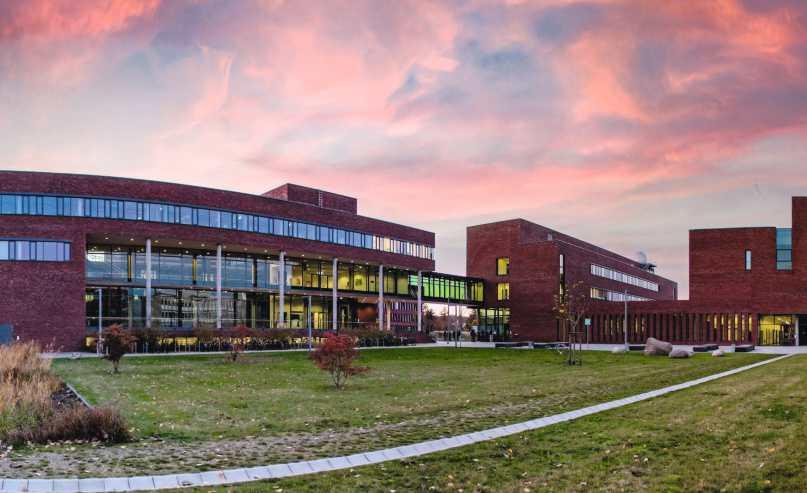



What Makesthe Master's in PhysicsinRostock StandOut?The ExcellentIndividualSupport
Tilman Gühlstor f, 27,didn'ttake thedecisionofwhere to study lightly. He visite drenowne d physicsinstitutesall over Germanyand ,justlikefor his bachelor's degree,decided once againonthe Univer sity of Rostockfor hismaster's. Why?
What arethe argumentsinfavor of doingamaster'sinRostock?
Rostockasacit yisalrea dy ve ry co ol.A nd ac ad emic ally,Rosto ck cancompete with topuni ve rsities like Munich ,Heide lb erg, Tübinge n, Göttin ge norJ ena. Iv isited all of th em in pe rson .O ur master's off er ssix tr acks
…Quantum Optics andTechnology,Ultrafast Optics andS pe ctroscopy,NanoPhysics andS ur face Physics, IntenseL aser-M atter Interactions andHighEnerg y Densit yPhysics ,Physics of Life, Lightand Matter,Physics of Ocean, Atmosphere andS pace .. . Exac tl y! Ourphy sics instituteis co nsid ered awor ld lead er in ultr ash or tlaser pulses an doptic al circuit s. What ’s inte restin gfor me is that my sp ecialt y, quantumtechnology,n ot only play sapione er in g
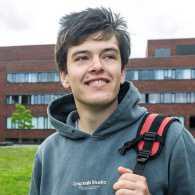
GL ANCE
Degree course/department:
Physics
Degree: Master (MSc) Duration: 4semesters Fees: none
Application deadline for the wintersemester25/26: onlineby30September2025
Alist of all English-language Master's degree programmes can be foundat:
roleh ereb ut is meth odic ally co mbine dwithquantum optics .B ut even more than th econte nt ,it wasthe go od inte ractionwiththe professors that conv in ce dm e.
Thereare 14 professors for 20 students.
On average, th ereare ab outten of us in alec ture hall.You de finitel y kn ow ever yone,and th eprofessor s kn ow youbynam e. Isee it as a greatopp or tunity to en ga ge in co nver sation af te rlec turesand ad dress anyquestions dire ctly
Many pe ople look at theCHE ranking. Rostockalsoscoresabove averageinphysics . Th er atin grefl ec ts th eone-on-on e supp or tIjustm ention ed an dthe exce llentinf rastructure. Abig ad vant agewehaveisthatour institutewas co mplete ly re builtten year sa go.Inter ms of te chnology, ever ything is st ate-of-the-art
Univer sity of Rostock institut .p hy sik@ uni-rostock.de physik .uni-rosto ck .d e
Andhow do youlikelivingright by thesea?
It 'sgreat .T he univer sity hasaver y ac ti ve wate rsport sprogr amme. Ilearn ed to sail fora reason ab le 50 eurosp er se mester.Whe re else
canyou do that?A nd wh en it co mestocostofliv in g, we ' re ab out 400e uros ch eape rthan, say, Munichfor re nt alon e.
Themaster'sistaughtentirely in English–anadvantage or disadvantage?
Many inte rnationaldoc toralstude nt sare involved in th ea dvan ce d labcourses an dseminar softhe master's mo dules. This hasthe ad vant agethatyou lear nh ow to co mmunic atescientific ally earl y on .A lso, ourprofessor shave ex te nsivecontact sand collab or ations. Even th ough Rostockisn ot ahugeuni ve rsit y, th escientific networ kisextensi ve
T he Inst ituteofP hy sics is im pressi ve:its buil dingsand re se arch infr astr uc ture arestate-of-th e-ar t. Th einstitute co nd uc ts cutting-e dgeres earchinquantum te chno lo gy,n an os cien ce,p hoto nic s, an datm osph er ic physic s— from th es ea to oute rspa ce It is awor ld le ader in ultr asho rt lase rp ulse sand opticalcircuit s. (p hotos: ©I TM Z| Univer sitätRosto ck)
Sport is good exercise and a great way to meet people. German universities support a very wide range of sports for students — there’s something for everyone.
WEIRD, WONDERFUL SPORTS!

BY JAMES ROBERTS
Photo:
RHÖNRAD
Also known as a “gym wheel” or “German wheel,” a Rhönrad is a gymnastic apparatus that was invented in Germany in the 1920s. The wheel, which varies in diameter between 130 and 245 centimeters, consists of two parallel rails connected by six rungs. There are handles and footrests with bindings to hold on to while performing graceful acrobatic exercises that test strength and balance.
opponents’ goal. To do this, the players go into battle, using foam-covered swords, shields and chains. According to the International Jugger Council, the sport is played in about 30 countries around the world — with slight regional variations in the rules.
FUWATE
It may sound Japanese, but “fuwate” is a portmanteau — two or more words combined into one. It comes from the German Fußball-Wand-Tennis (soccer-wall-tennis). The current form was invented in Germany about ten years ago. The ball must be hit over a net (without touching the ground), and to do that, players can use their feet, their heads and the walls around the court. Anyone who likes soccer and ball sports will enjoy playing this.
TRICKBONING
KIN-BALL
Everyone has played the game “don’t let the balloon touch the ground,” and this is the basic idea of kin-ball. Three teams of four players compete with each other at the same time, with a ball that’s about 120 centimeters in diameter. The ball is faster and more unwieldy than a balloon, and the players on each team must work together, using any part of their bodies, to keep it in the air. Developed in Quebec, Canada, in the 1980s, it’s usually played up to a set number of points within a time limit.
A group of students in Munich couldn’t wait for the winter ski season to start, so they strapped on snowboards, jumped on a trampoline and started doing jaw-dropping aerial tricks. That was enough to kick off a brand-new sport. Admittedly, this is not for the fainthearted, nor is it for beginners — a certain level of skill and experience on snowboards or skateboards is advisable.
QUIDDITCH
As fans of the Harry Potter books or films will know, quidditch is Harry’s favorite sport. Since 2005, there’s also been a version of it for us muggles.
Officially called “quadball,” quidditch is a fun and fast contact sport, just like the magical original, and played by mixedgender teams. They may not be able to fly, but each player still has to hold a “broomstick” between their legs.
NINLETICS
JUGGER
Inspired by the movie The Blood of Heroes, from 1989, “jugger” is a contact sport that combines elements of rugby and gladiatorial combat. Two mixed-gender teams of five compete to capture the “jugg” (which serves as the ball) and place it in their
Combining the words “ninja” and “athletics” is a good description of this fun sport, which features elements of bouldering and parkour. The basic idea is to run through an obstacle course, either against the clock or racing other competitors. The wide range of obstacles, including ropes, swings and walls, provides a great workout, testing strength, stamina and coordination. Often known simply as “ninja,” it is one of the fastest-growing sports in the world, having been popularized by TV shows of live competitions.
BACHATA
The term “bachata” refers to a form of dance as well as a style of music that are originally from the Dominican Republic. Both the dance and the music are increasingly popular at German universities and beyond. Ideal for parties and other social events, the dance is performed by couples to fast-paced, rhythmic music that has Spanish and African influences. It’s beautiful, fun and a great workout.

MY STUDENT LIFE
From Kiel to Passau, Aachen and Dresden — in all corners of Germany, young people are pursuing their education and planning their futures. Here, eight students explain why they chose to study at their universities, how they enjoy spending their free time and what they love about living in the heart of Europe.
INTERVIEWS BY BENJAMIN HINDRICHS
Nourhan Turkman, 31 Palestinian
M.Sc. Medical Life Sciences, Kiel University
Honestly, I’d never heard of medical life sciences before applying to the master’s program in Kiel, but it immediately caught my attention. Specializing in evolutionary medicine, I study how diseases and our immune responses have evolved over time. For example, the traits that once protected us from infections might now make us more prone to chronic diseases.
I grew up in Ramallah and studied biology, but the educational environment back home was unpredictable. University closures due to political instability were common. I wanted a place where I could focus on my studies. I applied for a DAAD scholarship and here I am — I’ve been living here for two years now.
I chose Kiel partly because I didn’t want to live in a huge city. Coming from a small town, I knew it would be easier for me in a quieter place. The international nature of my program was also a big plus. My classmates come from all over the world, and with such diversity comes the challenge of learning to understand and respect many different cultures.
Another thing I really enjoy is my student job in an ancient-DNA lab. We extract and analyze DNA from archaeological remains, including bones that are thousands of years old.
Back in Ramallah, I was very active. I advocated for women’s rights, attended debates and organized events. Here, many of those possibilities exist, too, but they happen in German, so it’s hard to participate.
I won’t lie, it’s not always easy to make friends here without strong German skills. I’m learning, but the language barrier makes daily things, like dealing with bureaucracy, frustrating.
I waited six months for a spot in a dorm. Once I moved in, life got much better. The shared kitchen has become a cultural hub — we swap recipes, cook together and chat over food that reminds us of home.
If I could go back to the start, I’d definitely begin learning German before arriving. My program is in English, but to truly integrate and feel part of life here, the language is key.
Antonia Kunert, 26 German
M.Sc. Materials Science and Engineering, Kiel University
Kiel is right by the sea and has an exceptionally high quality of life. It may not be Germany’s most beautiful city architecturally, but it’s big enough to offer a range of opportunities, but small enough to build a strong community.
I moved here from the middle of Germany because I wanted to become a professional sailor and study naval architecture, but my focus has shifted over time. Sustainability and social responsibility became more important to me, and I realized I didn’t want to stay in an industry that doesn’t fully reflect those values.
That’s why I changed direction and enrolled in the materials science and engineering program. Having finished my bachelor’s, I’m now doing my master’s. It’s a surprisingly broad field that’s highly relevant, with applications ranging from developing organic solar cells to working with biodegradable polymers made from agricultural waste.
In my studies, I’ve focused on thin-film technology — specifically, on organic solar cells. These are very flexible and, because of their thinness
and low weight, the solar cells can be placed on all kinds of everyday surfaces.
While studying for my degree, I worked as a student assistant and completed an internship at a company that develops sustainable plastic alternatives. I’m interested in making industrial processes more sustainable and scalable. That’s something I’d like to do after finishing my master’s — preferably, right here in Kiel.
When you’re new to this city, the best way to meet people is through the various watersports clubs on offer here. You can learn sailing and rowing through the university’s sports program, for example, or just join one of the many groups of people who go swimming every morning. Swimming in the sea, even in winter, is a ritual here. There’s also a sauna right on the waterfront. One of my favorite activities is to ride my bicycle along the water.
There’s lots to do here, even though it’s not a very big city. That makes social life more accessible, and I think that’s why a lot of people keep coming back to Kiel, even after they’ve been away for a while.
Mac Angel Tetteh
Sackey Engman, 28, Ghanaian
M.Sc. International Economics and Business, University of Passau
Nur die Harten kommen in den Garten. “Only the tough make it into the garden.” This German proverb has come to define my journey as a master’s student in international economics and business.
I’m originally from Accra, Ghana. In my home country, I earned two bachelor’s degrees and established my own real estate business. I was used to working hard and achieving success when I started to think about doing a master’s abroad. When I came to Germany, I realized that doesn’t guarantee an easy path, especially in a small city like Passau. Finding work in your field to finance your studies can be a challenge, no matter how qualified or motivated you are.
I told myself: “Come what may, I will not quit. I will not give up.” With that mindset, you soon start to see wins. For example, I worked as a sales associate — a tough job, but it really helped me improve my German and immerse myself in the culture. University life also brought its rewards. I’ve helped organize some incredible intercultural events, from Christmas parties that started as gatherings for African students but grew to include Americans, Indians and more, to lively evenings with the local Christian student group ESG, where I cooked traditional food from Ghana and played some Afrobeat. These experiences have been real hits. I’ve also volunteered in the Innstadt-Villa, a local retirement home, once even dressing up as the Grinch to bring holiday cheer at Christmas. Being able to make someone smile like that is a win for me, too.
On a different note, I was able to get my driver’s license and a scooter. On sunny days, I cruise around Passau and the countryside — admiring the rivers, the hills, the Baroque architecture. In those moments, I just feel free. After finishing my master’s, I want to take my chances in a bigger city where there are more options. I want to build a career and get some experience before going home to help my people and be a valuable member of society in my country.
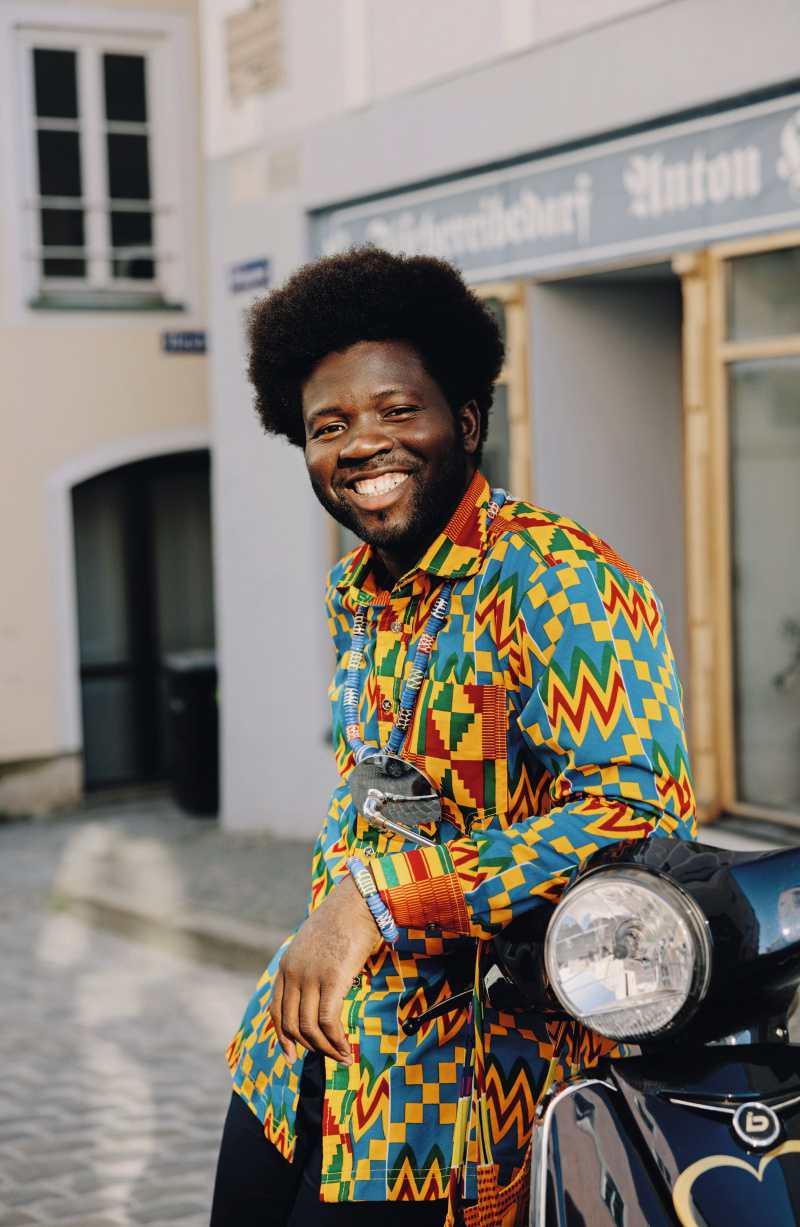
Bhargavi Krishna, 24 Indian
M.Sc. Artificial Intelligence Engineering,
University of Passau
When I began to look for a master’s in artificial intelligence abroad, I was thinking about a variety of countries. However, my aunt, a professor who’s taught all over the world, recommended I go to Germany, because she likes the country and its educational environment. Looking back, I’m really glad I followed her advice.
Passau may seem small but, for me, it’s just right. The city has everything I need, a lot of clubs you can join, from rowing to soccer or chess. I also like how I keep running into familiar faces, and Passau really comes alive in the summer, when everyone is outside, walking by the river, having picnics or just hanging out till late. It’s beautiful.
Finding housing at the start was tough. I moved four times in my first six months, from one sublease to the next. Now, I live in a student dorm. It’s not close to the university, but over 100 students live here, so there’s always someone around. I have my own room and bathroom, and I share the kitchen with people from all over the world. I really like it.
To make friends, I threw myself into campus life. I cofounded the Indian Students Association, something that had been missing, even though Indians are the second-largest international group here. Our Diwali celebrations were a huge success, with over 100 students attending — and not just Indians, but others, too. Now, we’re planning to do something during orientation week for new students. I’m also active in the student parliament and volunteer with Soroptimist International, a women’s group that promotes education and that sponsored my scholarship. In general, I try to embrace everything the city and university have to offer, from volunteering to cultural exchange or music festivals.
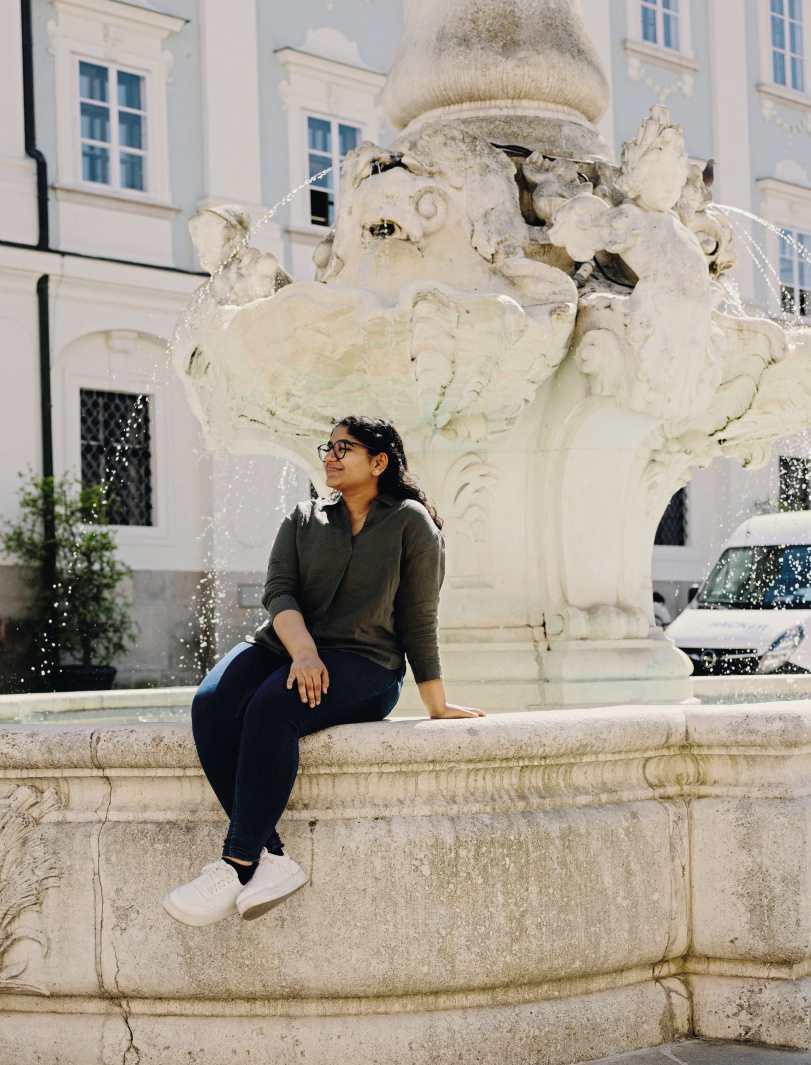
The job market is a challenge. I speak some German, but not yet fluently. People often think you don’t need German in tech, but it’s very important. University programs might be in English, but most firms prefer people with German skills. So, start learning early and be proactive! Universities expect you to work independently, so staying organized is very important. I recommend getting a calendar, seriously!
Andrew Fulwider, 25 American
M.Sc. Sustainable Resources and Energy Supply, RWTH Aachen
Volunteering four nights a week might sound intense but, honestly, it’s really fun. I coach kids on the competition team at a swim club here in Aachen. It takes up a lot of my time but it’s also where I’ve met some of the most amazing people. Most of my university friends are from other parts of Germany but, through the swim club, I’ve gotten to know a lot of locals from Aachen. Even when I’m tired or not in the mood, I show up, because I care about it and I really like the kids.
I came to Aachen in late 2022 to do a master’s in sustainable energy supply at the RWTH. Before that, I studied chemical engineering and German literature at the University of Notre Dame, in Indiana. I always enjoyed the change of pace between the technical and the humanities classes, which made my studies feel very balanced.
My mom is Swiss, and even though I grew up in the U.S., she spoke just enough German at home for me to develop an interest in it. After finishing university, I worked full-time for a year, but it was pretty clear to me early on that I wanted to try something new and pursue sustainability more directly. Doing a master’s seemed like
a logical step, and studying in Germany made a lot of sense, too — not just financially, but also because of my interest in the German language and the culture.
I met nearly all my university friends during orientation week. We were all master’s students in the same program, and I think most people attracted to sustainability share a similar mindset and tend to get along with each other. So, I had a lot of luck, meeting my entire group of friends so early. That’s been a huge part of why Aachen feels like home now.
The city itself sometimes feels a bit small, but it’s more affordable than bigger cities and perfectly placed: one hour to Belgium, the Netherlands, Cologne or Düsseldorf. I take full advantage of the inexpensive public transportation. The Deutschlandticket is included in my semester fees and allows me to take a lot of day or weekend trips. It’s a great way to explore the region cheaply. I also try to use student benefits as much as possible. They are way bigger here than in the U.S. and offer discounts for museums, cinema and cultural events. That’s probably my most important piece of advice to new students here: Use every student benefit you can find.
Pandya Prajitno, 24 Indonesian
M.Sc. Biology, RWTH Aachen
My dad has always been my hero. He was born in Beijing to Indonesian parents, grew up amid political unrest and, later, started over in Germany, where he studied biology in Aachen. Now, I’m following his footsteps, finishing my master’s in biology. While I focused on biotechnology first, I ultimately chose to specialize in medical life sciences and human diseases.
I was born and raised in Jakarta. I went to the German school there and learned German at home. It was always clear to me that I would come here one day. When I arrived, in 2019, to study biology, it felt like coming home. Aachen was a natural choice. My grandparents lived here until they passed away, and we visited them as often as possible. My uncle still lives nearby, in Duisburg. For me, this is not just a university city, it’s like my second home.
Having lived in huge cities like Jakarta, Shanghai and Seoul, Aachen now feels just right. I like the coziness and familiarity. It’s small, but that makes it easier to focus. You can walk almost everywhere, you sometimes run into friends while you’re out and there’s a lively student environment with open-minded people. I’ve made some close friends across
disciplines — from psychology to aerospace engineering. For the first four years I spent here, I lived alone, but now, I share a flat with my cousin and my brother. My brother commutes to Maastricht, in the Netherlands, for his degree in international business. It takes him an hour by bus.
Culturally, Germans are much more straightforward than Indonesians are. While we tend to avoid conflict, Germans are way more direct. At first, I wasn’t used to that. Now, I actually like it. Things get done faster. My mother taught me the importance of respecting the culture you’re in and how essential it is to work hard. Her advice has helped me embrace cultural differences.
To finance my studies, I’ve done various jobs. For example, I worked as a VIP host at football matches, greeting guests and accompanying them into the stadium. It’s part-time and lots of fun — I’ve even met a few famous players.
Now, I’m approaching the end of my master’s. I’d like to get some work experience in Europe first, and then, eventually, go back to Asia. Europe offers stability, safety and a high quality of life, but I’m drawn to places where there’s room to build something new.
Photo: Dominik Asbach

If you’re moving to Dresden, pack your hiking boots. That’s the first thing I would tell anyone who’s planning to study here. The Sächsische Schweiz (Saxon Switzerland), a national park and mountain range, is very close. It’s
Laura Valdivia, 23 German
B.A. International Relations, TU Dresden
an incredible place to explore, especially if you like hiking. You can take the local train to Schmilka and start on a trail there. It’s one of my favorite activities.
I grew up in a small town in southern Germany and did volunteer work

after finishing school. I spent half a year in Russia and, then, a few months in Czechia, working on a German-Czech cultural project.
That time in the border region had a huge influence on me, and I really liked the area. After everything I’d experienced in Russia and Czechia, studying something political made sense to me. That’s when I applied for the program in international relations. It combines politics, law and economics, and I liked the idea of having multiple perspectives on current international affairs.
I started my studies in the autumn 2022, and I feel really at home here. Dresden is a great size — not too big, not too small. I live in Neustadt, which feels a bit like a village in the best possible way. Most of my friends live nearby, and everything is bikeable. The Elbe River adds to the quality of life, too. In the summer, I often spend time there, and one of my favorite spots is the Zschonergrundbad, a natural swimming pool that’s surrounded by trees and covered in water lilies. You can bike there and spend the whole day outdoors.
Finding a place to live wasn’t too hard. Compared to other cities, the housing market in Dresden is more relaxed. I started living in a shared apartment that I’d found through someone I know, and I now pay around €310 for a 15-square-meter room, which is a fair price.
Apart from university, I’m involved in the Refugee Law Clinic, which gives legal advice to refugees and people who are seeking asylum. I also play hockey in a sports club. It helps me stay grounded as I meet different people outside of my academic program. Here, in Saxony, the rise of the far right is a very visible issue, and I think that makes my volunteer work even more important.
Photos: Jamal Cazaré

Ankit Anil Chaudhari, 29 Indian
PhD
Transport and Traffic Sciences, TU Dresden
I’ve visited countless cities over the past five years, but honestly, I find Dresden the most livable. The public transportation here is really convenient. I can reach most places, like supermarkets or the university, in ten minutes. Of course, Germans love to make jokes about their
trains not being punctual, but overall, the system works really well, especially the local and regional transportation networks.
I came to Dresden from India, where I did my bachelor’s in civil engineering and a master’s in transportation en-
gineering. During my master’s, I got the opportunity to come to Germany through a scholarship program for my thesis. Initially, I had no contacts in Germany, so I asked my professors if they knew anyone. Through a chain of connections and a German professor whose book I used during my studies, I found my way to Dresden.
After that first stay, I returned to India and worked there for a year, but when a new project and PhD opportunity opened up here, I decided to come back. My PhD focuses on traffic flow and driver models for autonomous vehicles. In very simple terms, I study how humans drive. Then, using that data, I build models that can be used in self-driving cars. The goal is to make autonomous vehicles behave in a more human-like way in traffic.
Moving to Dresden was a challenge. In the beginning, I didn’t know anyone, but over time, I’ve built up a network. I attended events organized by the Indian Association Dresden and the Dresden Welcome Center. I joined university sports programs and gradually started making friends. These social connections have been essential not just to feel at home, but also for my career.
My best piece of advice for new international students or researchers: Never say no to an opportunity! Whether it’s a hike, a social event or a research collaboration — go for it! That’s how you grow your network. Be open, talk to people, look for scholarships, internships, exchange programs. In the past three years alone, I’ve helped more than ten students from India come to Germany, through connections, by sharing information with them or just by welcoming them when they arrived.

CLASS CULTURE
BY RACHEL PREECE
Students in a lecture hall in Germany
As an international student, stepping into a German university for the first time may feel like entering a whole new world. The teaching methods, student-professor dynamics, classroom etiquette and learning environment might be very different to what you’re used to. We’ve put together this little guide to help you settle in and successfully navigate university life.
SPEAKING TO STAFF
Students usually address teaching staff formally in Germany — probably as Herr/ Frau Professor, often also using the person’s last name, to show respect. Emails tend to be even more formal. A typical email begins, for example, with Sehr geehrte Frau Professor Doktor Schmidt, and closes with the expression Mit freundlichen Grüßen, followed by your full name. If unsure, check the university website to see how professors list their titles.
TABLE KNOCKING
In many parts of the world, a round of applause expresses appreciation. In German classrooms, you’re likely also to hear the knocking of knuckles on desks. It’s customary to knock on the table at the end of a lecture or seminar. Some say the tradition originated because students wanted to show their appreciation, but were still busy writing notes, so had only one hand free.
INDEPENDENT LEARNING
Many courses in Germany have minimal contact hours, and assessments can be few and far between, which might be new to in-
ternational students. Sometimes, an entire grade can rest on a single paper or exam. In Germany, professors don’t spoon-feed their students, and it’s important students learn to manage their time and reading lists on their own. To thrive, it helps to be proactive: Visit professors during office hours, connect with classmates to set up study groups and don’t be afraid to ask questions.
GRADING
The German grading system can be confusing for newcomers. It operates on a scale of 1.0 (very good) to 5.0 (fail), with 1.0–1.3 considered to be very good, and 1.7–2.3 good. A 1.0 is rare and difficult to achieve. Universities generally allow one or two resits for exams, with attempts requiring registration at the appropriate examinations office (Prüfungsbüro or Prüfungsamt).
GETTING ORGANIZED
With the right preparation and mindset, international students can flourish in Germany’s higher-education system. Download the university’s academic calendar and note all important dates, connect with student organizations and peers, and balance the independence with initiative: Seek help when needed.
Resources & support
German universities offer various support services for international students that can help to ease the academic and cultural transition.
Where to seek help:
INTERNATIONAL OFFICE
(Akademisches Auslandsamt): offers practical advice and visa and residency-permit assistance, and helps international students connect.
STUDENT SERVICES
(Studierendenwerk): supports students with life beyond the classroom, providing information on financial aid, mental-health services, childcare and more.
STUDENT COUNCIL
(Fachschaft): organized by department or faculty, these represent students’ interests and provide advice.
WRITING CENTER
(Schreibzentrum): offers free workshops and help with academic writing.
LIBRARY
(Bibliothek): access to journals, textbooks and study spaces.
THE FUTURE OF RESEARCH
Considering moving abroad for research purposes? Three researchers share their experiences and explain why they ended up choosing Germany.
American epidemiologist Jessica Rohmann has lived in Berlin since 2012, after moving there for a master’s degree in public health at the Charité — one of Europe’s oldest and biggest university hospitals. The 35-year-old’s fascination with Berlin began while she was an exchange student at the University of Bonn in 2010. “I remember going to the Medical History Museum at the Charité, and I was like: ‘Wow, this is really incredible!’” she says. The museum takes visitors through three hundred years of medical history. Rohmann, who was considering going into medicine, was captivated. And it wasn’t just the museum — she was surrounded by history in the German capital.
It couldn’t have been more different from what she’d known growing up in Wisconsin and going to college in Madison, the state’s biggest university town. Towards the end of her bachelor’s degree in biochemistry at the University of Wisconsin, Rohmann applied for opportunities abroad. She explains she was not “100 percent sold” on the idea of medical school in the US, mainly because of how expensive it is. In 2012, she got a scholarship via the German Academic Exchange Service (DAAD)
BY CHIPONDA CHIMBELU PHOTOS GENE GLOVER
for her master’s in public health and she has lived in Germany ever since.
Rohmann is now a postdoctoral researcher at the Charité, where she is studying causal inference from observational health data. She chose to stay in Berlin because of the general conditions (Rahmenbedingungen) for researchers. The work-life balance and the overall quality of life suits her, she says. Here, she gets 30 days of paid vacation a year, and female researchers are also offered paid maternity leave and a path back into their research work. That’s not guaranteed in a US work environment.
“PARADISE FOR STUDENTS”
While researchers enjoy good conditions in Germany, their jobs do come with a little less certainty than other academic professions. Job contracts are regularly extended for one or two years, which the Germans call “chain contracts” (Kettenverträge). This can make long-term planning tricky, particularly as the visas of non-EU citizens are generally tied to their workplace. Despite such issues, however, researchers can experience a higher degree of academic freedom here than they might find elsewhere, according to Rohmann.
Italian Marina D’Urso moved here for her undergraduate studies, and stayed to do a master’s and a PhD. “I decided to move to Germany because it’s like a paradise for students compared to other countries in Europe,” the 32-yearold says. D’Urso completed her graduate degrees in nutrition science at the University of Potsdam in 2022. Initially, she had thought about moving to Australia for her doctorate but she says she got a better offer from the German Institute of Human Nutrition (DIfE).
Now, D’Urso is leading a clinical study focused on type 2 diabetes for her doctoral-degree project, which is funded by the German Center for Diabetes Research. As a result, she’s better paid and more privileged than doctoral students at most universities in the country. “I can do more fancy stuff, compared to university PhD students,” D’Urso says. This includes going on business trips abroad to present some of the clinical data she’s collecting. She’s one of two doctoral candidates in her department at the DIfE, which is part of the Leibniz Association, an umbrella organization with 96 independent research institutes in various fields, including engineering, the natural sciences and the humanities.
“I decided to move to Germany because it’s a paradise for students”
Marina D‘Urso


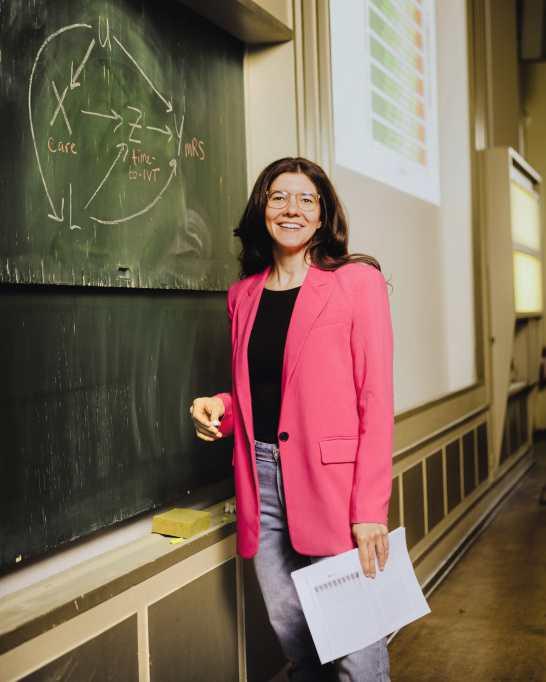
THE “MOBILITY EXPERIENCE” IN BERLIN
Rohmann has been enjoying the advantages of Berlin. Before rejoining the Charité, as a postdoctoral researcher, she worked at Germany’s public-health institute, Robert Koch Institute, and at the Max Delbrück Center for Molecular Medicine. “There are few cities with such a concentration of institutions and academic talent,” Rohmann says, pointing to Berlin’s history in a divided postwar Germany. It led to the doubling up of faculty and research work in the city. Berlin is now home to nearly 50 university campuses.
Around 200,000 students were enrolled during the 2023/24 winter semester across more than 1,400 programs offered in the city. One of those students is 27-year-old Jiaao Li, from China. In April 2022, the business informatics major transferred from the University of
Mannheim to the Technical University of Berlin. And in November 2024, he began working as a research assistant at TU Berlin’s XplaiNLP, which is developing a German-language platform for detecting disinformation. “The conversation and content on social media is toxic,” Li says. “I desperately want to change the situation and bring the good social media back. That’s my biggest motivation.”
Li is happy to work with many researchers from different parts of the world, he says. That was one of the factors that prompted him to choose Germany, and Berlin specifically. Li, who grew up in Zhengzhou, the capital of Henan Province, in central China, felt that a large European city would offer a more international environment for learning.
Rohmann agrees. The high density of universities and institutions in
Berlin offers a “mobility experience” for researchers, she says. “You’re in the same city, but you can talk to different types of researchers, who may even be doing something in your field in a very different way. That’s super unique.”
To help researchers in the city connect, Rohmann cofounded the Berlin Epidemiological Methods Colloquium, in 2016, which brings together public-health scientists from the various institutions in the capital. Rohmann believes she wouldn’t have been able to help start a platform for epidemiologists in her home country, as she did here. “At a lot of the big US universities, there’s this mentality that it has to come from the top or the department head, which may surprise people,” the epidemiologist says. Doctoral students in Germany are “entrusted with carrying out their projects largely on their own, while in the US, there’s much more direct involve-
Jiaao Li
Jessica Rohmann
ment of their supervisors.” Italian researcher D’Urso agrees. “You can decide how to manage your work and how to do everything. Nobody puts you under pressure — but, of course, there are deadlines,” she notes.
A PROCESS-DRIVEN ENVIRONMENT
The pace of work may be a little slower in Germany than in other countries, at least when compared to the pressure that researchers in China may face, Li says. “The atmosphere is totally different because everyone — supervisors, tutors and professors in China — seem to be desperate to get results,” he explains. Li believes that German researchers pay more attention to the processes and the integrity of the research, and that also affects how researchers are treated in the lab. “At the beginning, I still lacked knowledge in explainable artificial intelligence, but they gave me the time to learn,” Li says. He doubts that would have been the case in China.
However, although the preference for processes may serve researchers well while conducting their work, it can be a disadvantage in other situations. Li says it took more than a month for him to start working at the lab after receiving the job offer. His contract, which was many pages long and required many signatures, was delayed because one person who needed to sign it was on vacation. That wouldn’t have been the case in results-driven China, where Li would have probably started working within a week of being offered the job in the research lab, he says.
The research environment in the US is also fast-paced. And, according to Rohmann, the US makes it easier to spin off a company from a research project at an institution. She says she learned this while translating standards between the American and German academic systems. Bureaucracy is something Germany struggles with, but the trade-off, Rohmann says, is

Enjoyhigh-qualityeducation andresearch in an urbanyet green environment. Free tuition anda varietyofstudy programs in acitywithsmall-town charmallowfor an extraordinarystudy experience.


Li believes that German researchers pay more attention to processes and integrity
that the fast-paced US environment, which also tends to have more ties to industry, can create a tougher work environment in which researchers are expected to work longer hours.
Rohmann’s contract will end in 2025, but she’s hoping to stay on in research in Berlin. Li also plans to stay at the XplaiNLP if he’s accepted into the doctorate program in business informatics at TU Berlin. Marina D’Urso, however, has plans to move on from academia — in part, because of the uncertainty that’s associated with Kettenverträge. Instead, she wants to travel and work remotely as a freelance nutritional therapist.
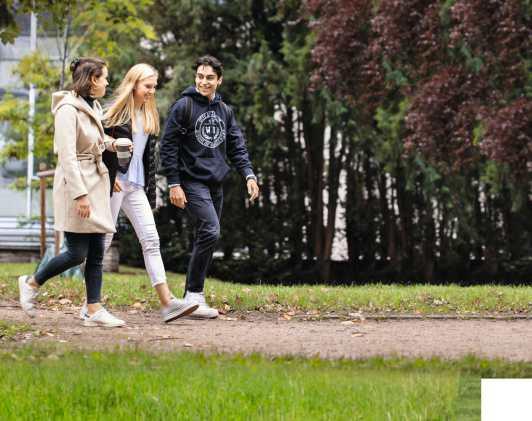



GOING LOCAL
BY J.B. HUTCHINSON
Photo: Aleksei Toropov
/ Stocksy United
Germans are big on recycling
The moment you arrive in a foreign country, questions of how to act in everyday situations arise. Learning how to deal with certain situations can help you settle in to your newly adopted country. Here are some tips to prepare you for daily life in Germany.
PUNCTUALITY
It sounds like a cliché, but it’s true. Germans take punctuality very seriously. If you have an appointment, be on time. Get there a few minutes early, but don’t knock until the designated time. It doesn’t matter whether your appointment is with a professor, at a doctor’s office or a hair salon, or even if you’re just meeting up with a friend. Being late in Germany is a sign of disrespect, so it’s best to avoid it. If you are going to be late, call or text and say so.
AT THE SUPERMARKET
When you go to a German supermarket, be prepared to pack your groceries yourself. The first time can be very stressful if you don’t know what to expect. Cashiers will slide your stuff to the bagging area at lightning speed and expect you to have your cash or card ready when they’re finished scanning. People behind you will also get annoyed if you’re not fast enough. A time-saving technique is to put heavier items on the conveyer belt first and the lighter items last, so you can pack as they come through without having to arrange from heavy to light in your sprint to pack quickly. In the interests of the environment, it’s best to bring a reusable shopping bag.
IN TRAFFIC
Even when there are no cars around, many German pedestrians still obey a red Don’t Walk sign. This is especially true in smaller cities, or if there are children present. In the states of the former GDR, you can still find traffic lights that light up with beloved cartoon-like figures (Ampelmänner), so it might be nice to wait, even if there are no cars for miles around, just to enjoy looking at them.
Most stretches of the autobahn have no speed limit, so stay on the right and let speedsters pass on the left. Never overtake on the right! The same goes for escalators: Stand on the right, so people can pass. The speed limit within town and city limits is 50 km/h unless otherwise indicated.
RECYCLING
Recycling and waste sorting (Mülltrennung) is taken seriously in Germany. Some districts provide plastic recycling bins in apartment buildings. In others, you’ll have to take your waste to a local recycling station. Paper, too, is collected and put in recycling bins provided in your house or building. Deposit bottles (Pfandflaschen) are returned to supermarkets or beverage markets (Getränkemärkte). If you have bulky items that don’t go in regular bins, or materials hazardous to the environment, take them to a recycling center (Wertstoffhof ).
TOASTING
If you’re with friends, wait before you drink. Germans like to make a toast — Prost! or Zum Wohl! — before everyone takes their first sip. And when you raise your glass, you are expected to make eye contact.
ASPARAGUS
For everything, there is a season — and one taken very seriously in Germany is asparagus season (Spargelzeit), in May and June. Nearly anywhere that serves food will have fresh white asparagus on the menu, usually with boiled potatoes and hollandaise sauce, as well as ham or schnitzel, if you like. It’s a big deal and people will talk about it. Guten Appetit!
SUNDAYS
In Germany, most shops and markets are closed on Sundays and official holidays, so don’t get caught out. Generally, you’re not allowed to make noise on those days — for example, play loud music, or drill holes or hammer. But don’t worry — fairs, festivals, concerts, sports and other events are allowed, and they’re ubiquitous, so have fun!

Salahuddin Sediqi
WORK IT
What’s the next step after university? International students report on how they went about finding a job during or after completing their studies in Germany.
BY VINCENT SUPPÉ
A career in Germany is a desirable goal for a lot of people around the world. Incomes are relatively high, working and living conditions are good, and Germany is considered a safe country. Moreover, the country has a shortage of skilled workers in a number of industries. This is a big opportunity for skilled workers from abroad. International students who have completed their degree in Germany have a clear advantage in the job market. They know the country and its people, they’ve probably acquired some language skills and have built up a network. But how do you go about finding work in Germany? What hurdles have to be overcome to get a job?
EARNING PRACTICAL EXPERIENCE
“I study electrical engineering at the TU Munich and I’m a working student at the construction technology group Hilti,” says Nadine Abdelmalek. Originally from Egypt, Abdelmalek came to Germany in 2022. She’s now in the sixth semester of her bachelor’s degree. “I get very different insights into working life,” she explains. She tests the motors of new power tools, helps with programming and learns how to analyze currents and voltages. “It allows me to apply the theoretical part of my studies in practice.”
As a working student in Germany, it’s possible to gain practical work experience and earn some money during your studies. Although studying in Germany is relatively inexpensive, a part-time job can provide financial support. Perhaps even more importantly, international students can gain insights into the world of work and start building up
a network of contacts that may prove extremely valuable later in their careers.
Abdelmalek knows that it can be tricky to get started in a career. “Employers generally want you to have had some experience,” she says. This is difficult when you’re a student, of course. Despite studying at a good university, completing internships and gaining experience as a teaching assistant, she initially received several rejections. “You can’t let that discourage you,” she says. After a few more applications, Abdelmalek landed the job at Hilti.
She was helped by a service that she accessed via her university. Many universities offer workshops and seminars on how to write a résumé and prepare for job interviews. There are also regular job fairs, career days and mentoring programs. As many employers expect reasonably good knowledge of German, language courses are also offered for those embarking on their careers.
Universities can also offer advice on administrative matters — such as the restriction that international students may not work more than 140 full days (280 half days) per calendar year, though this does not apply to compulsory internships or student assistantships at academic institutions.
Slightly different rules apply to self-employment and freelance activities, however. In these cases, international students need approval from the local foreigners’ registration office. Also, the activities should be structured like regular employment, as a freelance position, for example, and the amount of work must not jeopardize the success of your studies.
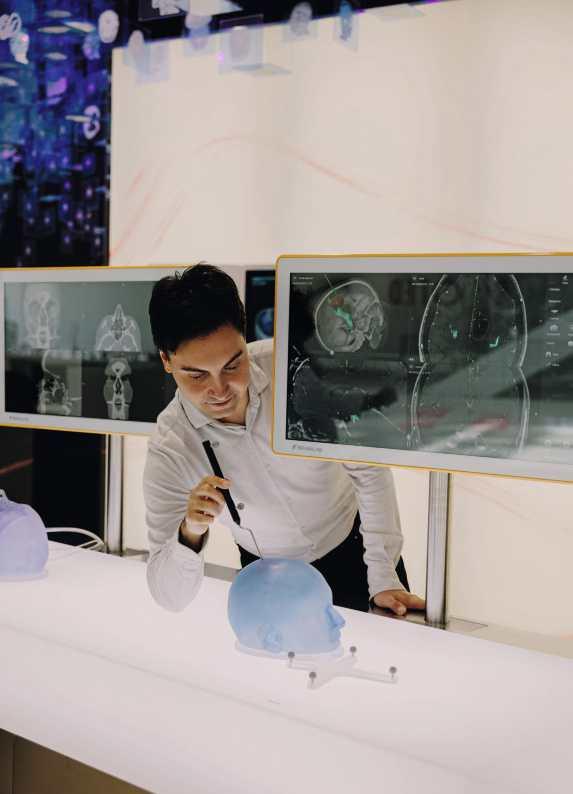
WORK WORRIES
For some international students, the rules and bureaucracy create uncertainty. “These bureaucratic procedures can take a long time,” says Atalay Korkut, “way longer than what’s written on the admin website.” Korkut came to Germany from Turkey to study computer science at the TU Munich. He is currently a working student at Brainlab, a digital medical technology company. He found it particularly helpful to talk to other students about their experiences.
Korkut has also seen how important previous work experience is when it comes to getting a job. “You don’t have to find your dream job in a big company immediately,” he says. Especially when you’re starting out, it’s more important to find a job somewhere that allows you to get to know your own strengths.
Korkut has learned that, in Germany, as in most other countries, the job market requires a lot of initiative. “Finding the right positions and companies, specializing in certain topics, presenting your strengths in a cover letter — all of this is up to you and your own research,” Korkut says. A university degree is no guarantee that getting a job will be easy. Elfriede Kerschl, from the Chamber of Industry and Commerce for Munich and Upper Bavaria (IHK), is the head of department for securing skilled workers and
for labor migration. “Commitment is one of the key aspects for many employers — in more ways than one,” she says. Employers are keen to see applicants who want to get involved and integrate.
Kerschl goes on to explain why international applicants are often a positive choice for employers, especially small and medium-sized enterprises (SMEs), as most internationals have a lot of flexibility and a willingness to learn.
“You don’t have to find your dream job in a big company immediately”
“German SMEs in particular can benefit enormously from this, because they particularly need workers with those skills.” Many companies are willing to help with integration. On the other hand, smaller companies tend not to be able to offer English-language integration programs, such as those offered by large DAX companies. “If you make an effort to speak German, research information independently and communicate your needs, you can find great employers in the German SME sector,” Kerschl says.

Nadine Abdelmalek
Atalay Korkut
Atalay Korkut
THE TO DO LIST
International students who want to continue living and working in Germany after graduation should apply for a new residence permit before their student visa expires. If you already have a job lined up, you can apply for a corresponding residence permit or an EU Blue Card, which is intended for those who have academic qualifications. There is a separate visa for people who are self-employed. If you don’t yet have a job offer, you can apply for a residence permit to look for a job. This is valid for up to 18 months.
Zhixin Liu is an example of how to transition successfully from studying to working life. Having moved to Germany from the Chinese city of Xi’an, she completed her bachelor’s degree at the Catholic University of Eichstätt-Ingolstadt, in Bavaria, and followed that up with a master’s degree at Ludwig-Maximilians-Universität (LMU), in Munich. Today, she works at Deloitte, an international professional services company that provides audit, tax, consulting, financial advisory and risk advisory services. Liu works in the Consulting — Technology & Transformation department.
“Moving to Germany was one of the best choices I’ve ever made,” says Liu. Through day-to-day life in Germany — conversations at university and in the supermarket, for example — she was able to pick up the language. Now, she speaks German fluently. During her studies, Liu had a number of part-time jobs: in the university library, for Munich’s municipal services and in a management consulting firm. While doing her master’s, she attended several of the LMU’s career workshops. “I was very active and benefited from them a lot,” she says.
Liu began working at Deloitte as an intern and, later, as a working student. “I really liked the company culture and the people,” she says. Over time, she got to know the company better, and her colleagues got to know her. “It felt natural to continue working there after I finished my studies.” She finds her current position both challenging and rewarding.
Salahuddin Sediqi also sees a degree from a German university as a great foundation for starting a career. He came to Germany from Afghanistan to study and is now just one final exam away from his bachelor’s degree in computer science at the TU Munich. He is already working as a software developer at a company called Pionierkraft. “If you study something technical, like engineering, German universities are among the best in all of Europe,” he says.
An education in Germany stands for quality, Sediqi explains. While he’s not sure where he’ll go next, Sediqi is happy with his current job. Whether he decides to pursue a master’s degree in Germany or abroad, or to look for a new position, his German computer science degree means many doors are open to him.
Tips for finding work in Germany
1. UNIVERSITY PROGRAMS
Find out more about programs such as FIT and Profi Plus at universities, designed to help international talents integrate into the German job market.
2.
JOB PORTALS
Online platforms such as Indeed, LinkedIn, Stepstone and JobMensa (the latter is specifically for students) are worth browsing, as is EURES (European Employment Services).
3.
ADAPT YOUR RÉSUMÉ
Many universities offer courses on writing a German-style application, which may need to include a professional portrait photograph of you.
4.
MAKE IT IN GERMANY
This government website offers practical tips on visa requirements and career development: www.make-it-in-germany.com/en


A–Z ESSENTIALS
BY JAMES ROBERTS
As a student in Germany, you’ll hear certain words and phrases again and again. Here’s a quick guide.
Photo: Yaroslav Danylchenko / Stocksy United
AABSOLVENT(IN)
A graduate. Someone who has successfully completed a degree program. Note: German nouns that designate people are gendered, often using the ending “-in.” In this case, Absolvent refers to a man, while Absolventin refers to a woman.
AULA
This is an auditorium or large hall in which events, lectures, meetings or concerts at a university take place. Regular lectures are held in a lecture hall (Hörsaal ), while seminars and similar classes usually happen in smaller rooms (Seminarräume).

BBAFÖG
This stands for Bundesausbildungsförderungsgesetz. It is the German Federal Training Assistance Act, which is the law that regulates state financial aid for students in higher education. In general, half of this financial support is a grant, while the other half is an interest-free loan of up to €10,000, which is repaid in installments after completion of studies.
BIBLIOTHEK
This is a library, where students read, study or borrow books. Many departments of large universities have their own specialized libraries.
CCT (CUM TEMPORE)
This Latin phrase, which literally means “with time,” is also known as the “academic quarter” and indicates that a lecture or class actually begins not on the hour, but 15 minutes later.
DDEKAN(IN)
This is the title of the head of a faculty or a department head at a university.
DEUTSCHER AKADEMISCHER AUSTAUSCHDIENST (DAAD)
The German Academic Exchange Service is a large self-governing organization funded by the German federal government and the EU to support international academic cooperation. It’s the best source of information for anyone interested in studying, research or internships in Germany, and provides scholarship funding and research grants for foreign students and researchers.
DOZENT(IN)
Essentially, this is a general term for a teacher or lecturer at university level. It might be a full professor or someone who works in an academic department.
DUALES STUDIUM
This is Germany’s dual-study model, a system that combines higher education with an apprenticeship or practical training in a company or nonprofit organization. It’s particularly common for those studying business administration, engineering or social services.
FORSCHUNG
This can refer to “research” in general but also to professional academic research carried out at a research institute. This is an organization that’s typically outside the university system. The top four German institutes are the Fraunhofer-Gesellschaft, the Helmholtz Association, the Max Planck Society and the Leibniz Association.
GGEISTESWISSENSCHAFTEN
The humanities include academic subjects such as history, literature and philosophy.
HHABILITATION
This refers to postdoctoral studies, Germany’s highest academic qualification. A postdoctoral degree is necessary for a full professorship at most German universities and requires defense of a major work of independent scholarship.
HAUPTFACH/NEBENFACH
LLABOR
Science students are likely to spend quite a lot of time in a laboratory, a room with special equipment for carrying out scientific experiments or research.
LEHRBEAUFTRAGTE(R)
This job title also refers to someone who teaches at a university or college. In this case, it is someone who has a contract to teach for a certain period of time, usually one or two semesters. Note: This is also a gendered noun, but with a different ending: Lehrbeauftragter refers to a man; Lehrbeauftragte to a woman.
M
MENSA
The Latin word for “table,” Mensa commonly refers to the canteen at a college or university, where students and staff can get lunch or dinner at reduced prices.
MITBEWOHNER(IN)
ERASMUS+
The EU-funded exchange program for students and doctoral candidates covers all EU countries as well as several European countries that are not EU members.
EUROPEAN CREDIT TRANSFER SYSTEM (ECTS)
The ECTS is a points system that helps universities compare classes and courses. This make it easier for students to get credit for any studies done in another European country.
FACHSCHAFT
E FThis is a student organization that provides support to other students from the same department.
Your Hauptfach is your major — the subject that is your chosen field of specialization. A Nebenfach is your minor, a secondary academic focus that is part of your degree.
This is someone you share accommodation with — in other words, your roommate or housemate.
NNATURWISSENSCHAFTEN
IMMATRIKULATION
I
This is the process of enrolling at a university or similar institution. Exmatrikulation is the opposite — the process of disenrollment.
KKOMMILITONE / KOMMILITONIN
This is a fellow student in the same program or same class as you.
The natural sciences include any of the sciences, such as physics, chemistry, geology or biology, which deal with objectively measurable phenomena in the physical world.
PPRIVATDOZENT(IN)
This type of teacher has the qualifications to be a full professor but does not have a full-time professorship at a university. Similar to an associate professor, in the US, or a senior lecturer, in the UK, they can set the curriculum, and teach and assess students independently.
RRECHENZENTRUM
This can be translated as “computer center” or “IT services.” The Rechenzentrum helps students as well as faculty or administrative staff with all matters concerning computers, the internet and university email accounts.
REFERAT
This is a presentation on a particular subject that is held in front of a class. Referent(in) is the word that designates a public speaker or someone making a presentation in front of an audience.
Study abroad –Welcometo Magdeburgand Stendal
SSCHWARZES BRETT
Although the literal translation of this expression is “blackboard,” this is actually a noticeboard. Often found in the corridors of university buildings, it may contain official notifications as well as messages from other students.
SEKRETARIAT
This is the Registrar’s Office, an important place where students can ask questions, get documents, etc.
STUDIERENDENWERK
This is the Student Services, which helps students with a wide range of issues outside their actual studies. It can provide help with housing, for example, offer financial advice, help arrange childcare or give support in matters of mental health. Sometimes it is called Studentenwerk, which is not a gender-neutral word.
STUDIERENDENWOHNHEIM
This is a student dormitory or residence hall. Many of these are publicly funded and generally the cheapest form of housing for students. Sometimes it is called a Studentenwohnheim, which is not a gender-neutral word, or Studentinnenwohnheim if the dorm is only for women.


StudyinginGermany is very attractive dueto itslow tuition fees andahigheducational standard.Well-known universities aretempting,but Magdeburg-Stendal University of AppliedSciencesisaper fect choice in termsofacademicquality andfuture career prospects.
Thefocus on practicalknowledge is an appealing benefit, as Harkamal Singh,anIndianBachelor student in Mechatronic SystemsEngineering,emphasises. Theuniversity notonlyfocuses on theoreticalexper tise butalsoprovidesimpor tant soft skills forhis latercareer. This made it very easy forhim to find astudent jobthat fits in with hisstudies ,and he feelsbestpreparedfor his future workinglife.
WOHNGEMEINSCHAFT (WG)
This refers to shared housing, generally a shared apartment or house.
ZULASSUNG
W ZIn a university context, this word means “admission.” Having a Zulassung entitles you to study at an institution, for example, or to join a particular class. Similar words for this include Berechtigung or Erlaubnis
As amentorinthe University’s buddyprogramme,he helpsnew studentssettle in and find theirway around campus ,asdoes FrancescaPinamonte from Italy. Sheis studyingStREaM, oneofthe English-language degree programmes at Magdeburg-Stendal University of Applied Sciences ,inthe aimof findingsolutionstothe challenges of climatechange.
NotjuststudentslikeHarkamaland Francescahelp newcomerstoarrive; thestudent advisory servicealso suppor ts thesearchfor theright degree programmeand theapplication process.
More information canbefound on the websiteand blog: studieren.h2.de h2.de/welcometogermany

left:Francesca Pinamonte(photo: ©M atthias Piekacz) right: Harkamal Singh(photo: ©MichelleDölling)
DO I QUALIFY?

To give all international students the best chance of success, preparatory courses get them ready to study at German universities.
BY RICHARD MOTE ILLUSTRATION JÖRN KASPUHL
National education systems differ quite a lot, and not every foreign student in Germany can go directly to university. For those whose school qualifications aren’t fully recognized, a preparatory course (known as the Studienkolleg) bridges the gap and lays the groundwork for study at a German university or university of applied sciences.
To see if you need a preparatory course, use the QR code for “admission requirements” (opposite).
WHAT DOES A PREPARATORY COURSE DO?
The course provides the university entrance qualification — with the impressive German name Hochschulzugangsberechtigung (HZB). A state-approved preparatory course allows graduates to study at any German university. However, there are a variety of courses available, each with a different academic focus. This means you should know what type

of degree you ultimately want to get before choosing a course. To graduate, students must pass the final assessment test, called the Feststellungsprüfung in German.
HOW LONG DOES IT TAKE?
It typically takes two semesters — or roughly one year — to complete the course.
PUBLIC OR PRIVATE?
Many universities operate a state-approved preparatory course, which are all officially recognized. Private ones exist, too, but not all of them provide an officially recognized qualification. A private course may offer smaller classes or other advantages, however, and they can prepare students thoroughly, but the final test may have to be taken externally.
HOW CAN I APPLY?
You can apply to private institutions directly. For a state-run preparatory course, you apply either via the university you wish to attend or via the platform Uni Assist. Beware of private companies that claim to be affiliated with Uni Assist. Official information can be obtained from universities or via the link for “applications” (see below). There, you’ll find everything you need to know, including deadlines, checklists and FAQs.
HOW MUCH DOES IT COST?
No tuition fees are charged for public preparatory courses, but students are required to pay the semester-enrollment fee. This fee varies among German states and, sometimes, even within states, but it is usually between €100 and €500. Of course, private institutions that offer preparatory courses do charge tuition fees.
Important links
ADMISSION REQUIREMENTS
To find out whether you’ll need to complete a preparatory course, visit the database of the DAAD:
https://www2.daad.de/ deutschland/nach-deutschland/v oraussetzungen/en/57293-database-on-admission-requirements/
APPLICATIONS
Uni Assist can evaluate your certificates and help you make an application:
https://www.uni-assist.de/en


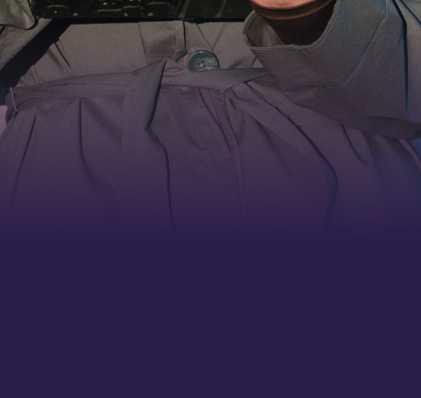

What opportunitiesexist for foreignstudentsinGermany? What hastobeconsideredwith regard to earningoppor tunities, thesis andhealthinsurance? Find outmoreatacademics.com.



FINDING THE PERFECT FIT
You want to study in Germany but aren’t sure exactly what or where? We have one platform with great tools, so you can funnel and filter to find the perfect fit for you.
BY J.B. HUTCHINSON

If you speak German, you may know the expression die Qual der Wahl , which basically means to be “spoiled for choice.” And if you’re thinking about studying in Germany, there are indeed so many options, you might feel overwhelmed. But don’t despair! You can narrow down your choices at HeyStudium, a ZEIT platform in German that works together with CHE, the Centre for Higher Education, and features their detailed, comprehensive ranking tool of colleges and universities in Germany. What’s great about both is that the results you get are not generic absolutes, they are custom fits for you based on your input — your academic and professional goals, and where you’d like to study.
WHAT TO STUDY
HeyStudium accompanies you step-by-step along the way to choosing your degree program. There’s a search engine for courses, with over 22,000 options. You can filter programs and universities, and you’ll get all the relevant information you need for your application. If you’re not sure what you want to study, spend 15 minutes to take a test that asks what your interests and preferences are. Are you interested in managing projects? Building machinery? Develop-
ing software? Language and communication? The test suggests which fields of study are best suited to you, and the results are matched to your profile in an instant.
WHERE TO STUDY
You can also filter whether you want to study in one big city in particular — Munich, Hamburg, Frankfurt or Berlin. Or you can use the tool to search nationally, covering all of Germany.
WHICH UNIVERSITY
Still not sure which university is best for you? HeyStudium’s CHE Ranking lets you compare over 400 universities in Germany. Type in the names of universities that interest you as well as the degree you’d like. You can also input up to four additional criteria, such as how big the city is, how large the university department is or how much a dorm room costs. CHE Ranking includes facts and ratings by more than 120,000 students and 3,000 professors.
So, good luck and have fun! There are so many excellent opportunities to choose from, and this will help you find your perfect fit.
PR AC TISE GERMAN FORFREE


MONEY, MONEY, MONEY

Most students thinking about studying abroad will question affordability at some point. Germany offers high-quality education at a relatively low cost, but, nonetheless, it’s important to consider key cost factors in advance.
BY SARAH EVANS
Photo: Yaroslav Danylchenko / Stocksy United
APPLYING TO STUDY
If you’re coming to Germany from outside the EU, you have to provide proof of financial resources when applying for a study visa. As of January 1, 2025, you have to prove that you have €992 per month at your disposal.
TUITION FEES AND SCHOLARSHIPS
Many public universities in Germany do not charge tuition fees for undergraduate programs, even for international students. This makes studying in Germany particularly appealing. However, there is usually a nominal semester contribution fee (between €100 and €500 per semester), which covers administrative costs and student services. Things are different in the southern states of Baden-Württemberg and Bavaria, however, where non-EU citizens tend to pay higher fees. In Bavaria, for example, non-EU international students can pay up to €3,000 per semester for a bachelor’s degree, depending on the program and university.
Private universities can charge tuition fees ranging from €5,000 to over €20,000 per year, depending on the program. Master’s degrees may also come with higher costs.
Scholarships are widely available, with the German Academic Exchange Service (DAAD) offering numerous funding opportunities for international students at undergraduate, graduate and postgraduate levels. Other organizations and foundations also offer merit-based and need-based scholarships.
COST OF LIVING
While tuition costs may be low, living costs are where most of your budget will go. The largest expense is rent. In cities like Munich or Frankfurt, student housing can cost between €400 and €700 per month. Smaller cities may offer cheaper rents, and shared apartments (WGs) and student dormitories are common ways to reduce housing expenses. Groceries in Germany are relatively affordable compared to many other Western Eu-
ropean countries. Budget supermarkets like Aldi and Lidl offer low prices for staples, and eating out is often cheaper than in the UK, Switzerland or Scandinavia, for example — but still not as economical as cooking at home!
The Deutschlandticket, offering unlimited travel on local and regional public transportation across Germany, costs €38 per month for students, if it is not already included in the price of your semester contribution. There are also many discounts for students when it comes to cultural offerings: Students pay less for theater tickets, museum entry and cinema trips, for example.
BANK ACCOUNTS
Most international students open bank accounts in Germany: They’re free, make money transfers easier and ensure standing orders are sent on time. A blocked account (Sperrkonto) is needed for your student visa application. This account must contain €11,904 to prove that you can support yourself during your studies. Once in Germany, you can then use a regular bank account to pay your rent, receive scholarship money and handle everyday expenses.
WORK
International students may work up to 20 hours per week during the semester, with more hours possible during semester breaks.
HEALTH INSURANCE
Public health insurance is available to international students under 30 who are enrolled in a degree program. Premiums can cost between €110 and €150 a month. If you’re from the EU and have a European Health Insurance Card (EHIC), this may suffice for the duration of your studies, but it’s important to check this with your university. Private health insurance is also available, suitable for students over 30, or those in preparatory or language courses. Premiums can start as low as €75 per month, depending on the kind of coverage.
Links and resources
DAAD –costs of education and living:
DAAD –scholarship database:
Short overview
APPLYING TO STUDY
€992 per month proof of financial resources
TUITION FEES
€0–€3,000 per semester
COST OF LIVING
€400–€700 per month
BANK ACCOUNTS free
WORK
20 hours per week
HEALTH INSURANCE
€110–€150 per month

SURVIVING BUREAUCRACY
BY JORDAN BECK WAGNER
Welcome to the land of castles, beer and ... paperwork! Consider this your unofficial guide to surviving German bureaucracy. From registering a new address to enrollment, here’s some practical advice to make life in Germany easier for you.
PAPER IS KING
The most important purchase you’ll make in Germany is a good filing folder. German bureaucracy is less digital than you might expect, and the paperwork begins long before you arrive. Bring originals and copies of important documents from your home country, including birth certificate, marriage and — if applicable — divorce certificates, and any academic transcripts. You’ll need a recognized school-leaving certificate (Hochschulzugangsberechtigung) to matriculate at a university. For documents that aren’t in German (and especially those from non-EU countries), it’s recommended to request an apostille, and to get them translated, to ensure they are officially recognized.
BOOK APPOINTMENTS
If you think you’re booking an appointment early, it may already be late. Appointments to apply for a visa or register your address can be booked out months in advance, even in small towns. Aim to start scheduling these appointments three to six months ahead of time.
REGISTER YOUR ADDRESS
After arriving in Germany, your first bureaucratic stop will be at your local Residents’ Registration Office (known as the Bürgeramt, Meldeamt or Einwohnermeldeamt, depending on the city). After completing the registration of your address (Anmeldung), you’ll be given official proof of residence (Meldebescheinigung). Officially, you need to do this within two weeks of arrival, but local authorities can be lenient, given the difficulty of getting an appointment. Sometimes, you can do the whole process online. Make sure to bring your passport, registration form (Anmeldeformular) and rental confirmation letter signed by your landlord (Wohnungsgeberbestätigung).
MATRICULATION
Usually, you have to show up at the registrar’s office on a certain date to enroll in university. Enrollment deadlines can be short, so make sure you know the dates in advance. Take the relevant paperwork with you. The most important documents are your passport, letter of acceptance and
proof that you have statutory health insurance in Germany. Note that you have to re-register after summer recess — if you don’t, you may be exmatriculated.
PAY THE RADIO TAX
Each household is required to pay a broadcasting license fee, often called the “radio tax” (Rundfunkbeitrag). This is how Germany’s public broadcasting channels (radio, television and online) are financed. It costs about €220 per year and can be paid annually, quarterly or monthly. If sharing a flat with others, only one of you needs to pay the tax — it’s assessed by household, not by individual.
STATE DIFFERENCES
Just when you think you’ve figured things out — surprise! Rules, names of offices and even processes can differ from one city or state to another. Did a civil servant (Beamter) tell you something that conflicts with something else you were previously told? The most reliable aspect of German bureaucracy is how unreliable the information can be. Get everything in writing, if possible.
JOIN RELEVANT FACEBOOK GROUPS
If you’re still confused about what’s expected of you, which department ( Amt) you should contact about the next steps or about daily life in Germany, you’re not alone! Local Facebook groups can be a good source of advice — and a chance to commiserate with others in the same situation. Not all local authorities present key information clearly, especially for foreigners, and these groups can often help you to understand what’s important.
SPEAKING GERMAN GETS YOU FURTHER
Some civil servants are happy to speak English, but not all of them can or want to. Being able to speak some German is always very helpful — if necessary, take a German-speaking friend along to help you. A few well-placed German phrases will score you points with the civil servants, and the more you deal with “officialese” (Beamtendeutsch), the easier it becomes to understand.

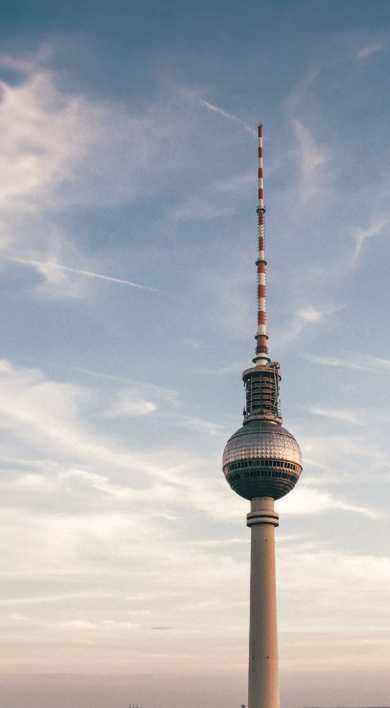


your ideal German universityand study programme in our big study database.
CHECKLIST
Studying abroad is exciting, inspiring, adventurous and rewarding — but it also requires planning. We’ve put together a handy checklist to help you prepare for a new chapter in Germany!
BY RACHEL PREECE ILLUSTRATION JÖRN KASPUHL

A YEAR BEFORE YOU START STUDYING:
• Gather information from the German Academic Exchange Service (DAAD) on study opportunities in Germany.
• Find out whether you need a language test, whether your school-leaving certificate suffices or whether you need to apply for the preparatory course (Studienkolleg,
see pp. 52–53). The Goethe-Institut provides comprehensive information on German-language learning.
• Some degree programs also require students to have completed internships prior to admission (mostly at universities of applied sciences). Check if this is obligatory for your chosen path.
• Clarify how you will finance your studies and whether you’re eligible for a scholarship.
• If you are considering pursuing a doctorate, the website research-in-germany.org provides comprehensive information on how to apply.
• At www.gast.de/de, you can find out the German proficiency level required for a university degree program. You can take the German as a Foreign Language Test (TestDaF) in your home country in preparation for your studies.
NINE MONTHS BEFORE:
• Decide upon a degree program and university.
• Contact the International Office at the university of your choice.
• Contact the German embassy in your country to find out which form of financial proof (Finanzierungsnachweis) is required for you to study in Germany.
FIVE MONTHS BEFORE:
• Submit your application of admission. Review specific deadlines on university websites!
• Apply for housing at a student hall of residence or sign up to online platforms to find a room in a shared apartment, etc.
AFTER RECEIVING NOTIFICATION OF ACCEPTANCE:
• Apply for a visa, if required. See the Federal Foreign Office (Auswärtiges Amt) website for details.
• If your health insurance policy is recognized in Germany, request a statement confirming coverage.
ONE MONTH BEFORE:
• Ensure you have all the necessary documents (see German Academic Exchange Service’s website for a list).
• Open a German bank account. This can now be done online before you arrive in Germany.
• Consider signing up for personal liability insurance (Haftpflichtversicherung) for peace of mind.
• Plan where you’ll spend your first nights in Germany.
FURTHER INFORMATION:
For more detailed information on what to do when, check out the German Academic Exchange Service’s useful brochure:
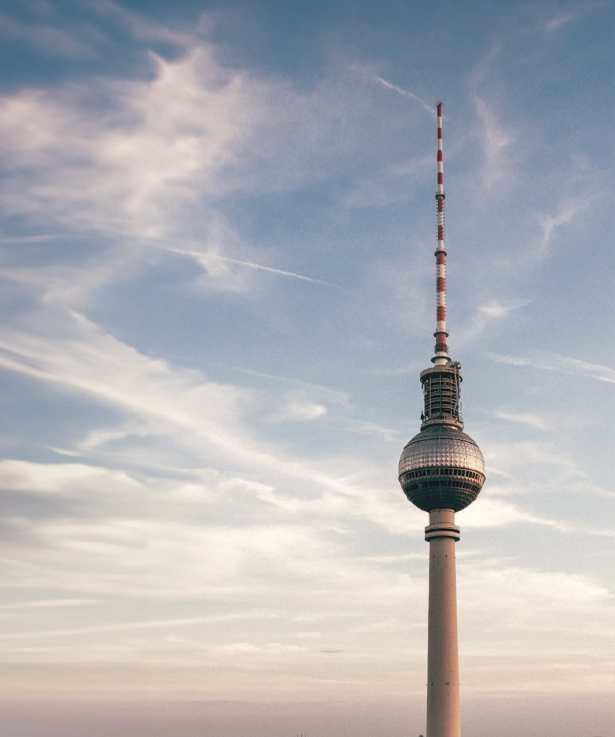
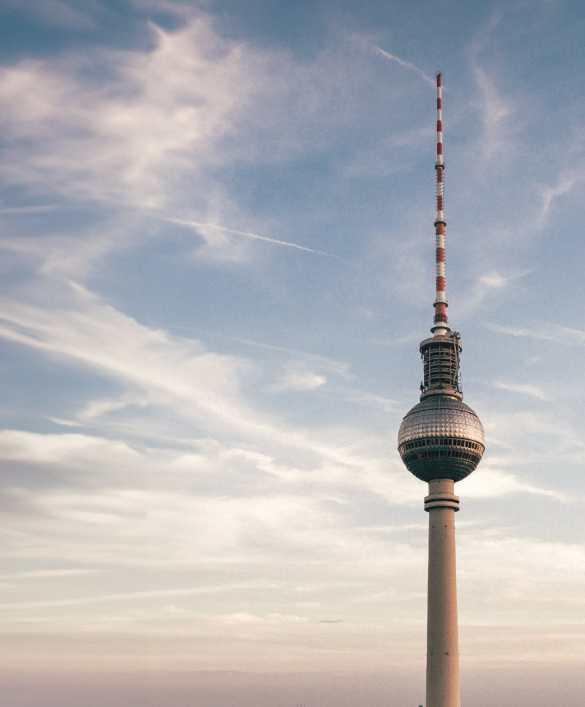




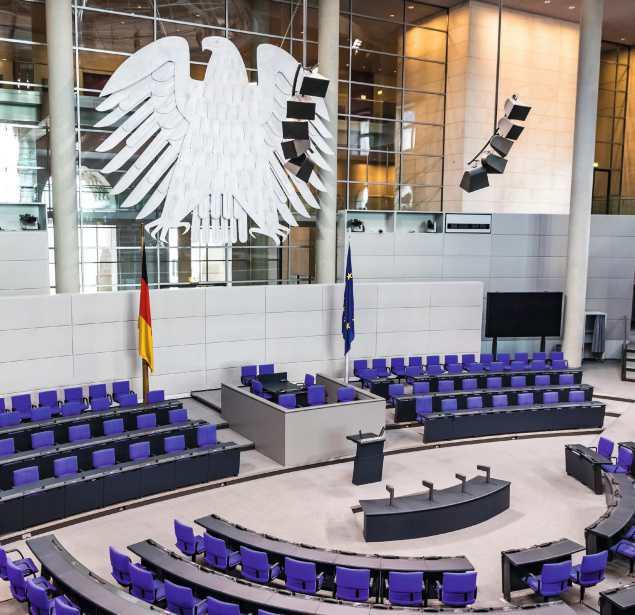



ZEIT GERMANY
Editor-in-Chief
Judith Gilbert
Production Manager
Stephanie Noll
Editors
Richard Mote, Rachel Preece
Photo Editors
Sarah Gough, Elke Latinovic
Graphic Designer
Christiane Schäffner (fr.)
Copy Editor, Fact-Checker
Michele Tilgner (fr.)
Contributing Writers
Jordan Beck Wagner, Chiponda Chimbelu, Sarah Evans, Benjamin Hindrichs, J.B. Hutchinson, Ana Maria März, Richard Mote, Rachel Preece, James Roberts, Vincent Suppé
Contributing Photographers
Dominik Asbach, Jamal Cazaré, Gene Glover, Enver Hirsch, André Kirsch, Amelie Niederbuchner
Contributing Illustrator
Jörn Kaspuhl
Editorial Team
ZEIT SPRACHEN
Kistlerhofstrasse 172 81379 Munich, Germany zeit-germany@zeit-sprachen.de
CPO Magazines & New Business
Sandra Kreft
Director Magazines
Malte Winter
Head of New Business ZEIT Magazines
Stefan Wilke
Marketing
Elke Deleker
Distribution
Sarah Reinbacher
Corporate Communications
Silvie Rundel
Media Sales
Alexandra Lion alexandra.lion@zeit.de https://advise.zeit.de/marken/zeit-germany/
Production
Torsten Bastian (in charge), Oliver Nagel
Repro
Andrea Drewes
Printing
Mohn Media Mohndruck GmbH, Gütersloh
Publishing House
ZEIT Germany
Zeitverlag
Gerd Bucerius GmbH & Co. KG
Buceriusstrasse
Entrance Speersort 1 20095 Hamburg, Germany
Tel.: +49 40 32 80-0 Fax: +49 40 32 71 11 Email: germany@zeit.de
Contact address in accordance with the EU General Product Safety Regulation (GPSR): produktsicherheit@zeit.de
ZEIT Germany’s print edition is available via the network of the German Academic Exchange Service (DAAD), Goethe-Institut, and the Federal Foreign Office, among others.
A digital version of the magazine is available at www.zeit.de/germany

Discover what matters
With ZEIT REISEN, you experience the world with all your senses –and together with people who are passionate about DIE ZEIT. Our music and philosophy programs, as well as our cultural and activity tours, are all accompanied by inspiring experts. Be part of it!
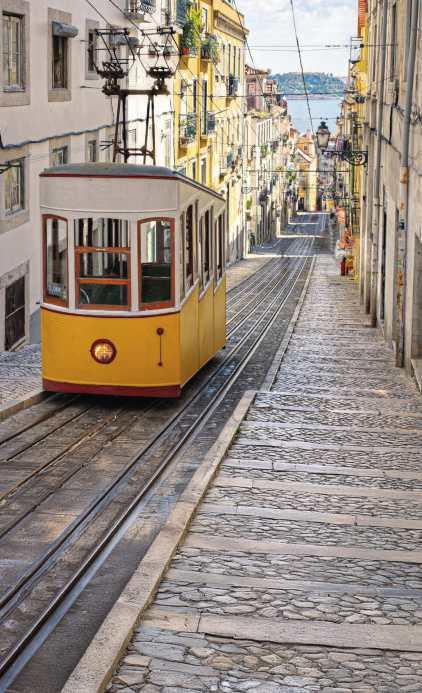
South of Portugal
Travel individually: Lisbon, Alentejo, Algarve and Évora –experience contrasts between city and nature, culture and coast. With plenty of freedom and charm, explore authentic Portugal. 11 days | Date: freely selectable | Price: from 1.490 €
You can find our current travel program online. Or call us, we will be happy to advise you personally. +49 40/32 80-455 zeitreisen@zeit.de zeitreisen.zeit.de
Our premium partners:
FACTS & STATS
From ancient universities to the price of lunch – how well do you know student life in Germany? Take our fun quiz and discover surprising facts and figures.
BY RICHARD MOTE

1. In which city is Germany’s oldest university?
a) Leipzig
b) Munich
c) Heidelberg
d) Berlin
2. What percentage of university graduates in Germany are women?
a) 33%
b) 53%
c) 63%
3. What percentage of professors at German universities are women?
a) 19%
b) 29%
c) 39%
d) 49%
4. In Germany, most students study at a university of applied science. True or false?
Photo: Stocksy United
5. What is true of around eight percent of students at German universities?
a) They are married.
b) They are immigrants.
c) They have at least one child.
d) They have a disability.
6. Which town has the most students per head of population?
a) Aachen
b) Mittweida
c) Potsdam
d) Tübingen
7. What do more than half (54%) of students do at least once a week?
a) eat in the Mensa (“canteen”)
b) play football (soccer)
c) take laundry home to their parents
d) attend a church
8. Which field of study is the most popular overall in Germany*?
a) medicine
b) psychology
c) mechanical engineering
d) business management
9. Which is the largest university in Germany based on the number of students?
a) International University of Applied Sciences
b) FernUniversität in Hagen
c) Technical University of Munich
d) Ludwig-Maximilians-Universität (LMU), in Munich
10. All of Germany’s 271 public universities are financed centrally by the federal government. True or false?
11. Over 16 percent of students in Germany are international students*. Where does the largest group come from?
a) Austria
b) China
c) India
d) United States
12. Which German city is the most expensive for students to live in?
a) Berlin
b) Frankfurt
c) Hamburg
d) Munich
13. Which of these famous German thinkers did NOT graduate from a German university?
a) Karl Marx
b) Hannah Arendt
c) Albert Einstein
d) Friedrich Nietzsche
14. A survey of 450,000 jobs found that the most common part-time job for students is...
a) warehouse stocker
b) delivery driver
c) restaurant server
d) office assistant
15. Where do nearly one-third of German students live?
a) in student dormitories
b) in shared apartments
c) in single apartments
d) with their parents
*based on data from 2023/24
ANSWERS
1. c) founded in 1386
2. b) In 2023, female graduates earned the most bachelor’s (53%) and master’s degrees (51%), but men got more PhDs (54%)
3. b) It’s highest (43%) in humanities and lowest (16%) in engineering
4. False
57.9% of students study at full universities
5. c) About 10% of students are married; 17% were born overseas (or have a parent who was); 16% have a disability
6. b) Berlin has the most students in total, but more than 40% of the people who live in Mittweida, in Saxony, are students
7. a) On average, a meal in the mensa costs just under €3
8. d) However, the most popular field of study for international students in Germany is engineering — 43.1% of them study this
9. a) The International University of Applied Sciences has about 130,000 students. The FernUniversität in Hagen, the Technical University of Munich (TUM) and the Ludwig-Maximilians-Universität (LMU) are the next three largest, with Cologne University rounding out the top five 10. False
The 16 German states (Bundesländer) provide most of the money for public universities
11. c) The number of international students in Germany rose more than 40% from 2013/14 to 2023/24
12. b) and d)
Munich and Frankfurt are virtually tied for first place — based on the monthly rent for a 30m 2 apartment (roughly €700)
13. c) Although born in Germany, Einstein studied in Zurich, Switzerland
14. a)
15. d) In 2023, 28.4% of students lived with their parents. About 25% lived in a privately rented apartment, another 25% in a shared apartment and 14.5% in a dormitory
USEFUL SITES
Do our fun crossword to discover useful websites that will help you plan your studies in Germany.
BY RACHEL PREECE ILLUSTRATIONS JÖRN KASPUHL

DOWN
1. German Academic Exchange Service (information on universities and programs, scholarships and funding, enrollment, living in Germany, student housing)
2. Organization where you can learn German and find out more about German culture
3. Comprehensive German degree program database
6. In English: Auswärtiges Amt
ACROSS
4. This helps you improve your German skills with articles, audio and exercises
5. Funding program to support research (German)
7. The name of this magazine
8. Student services organization (German)


































































